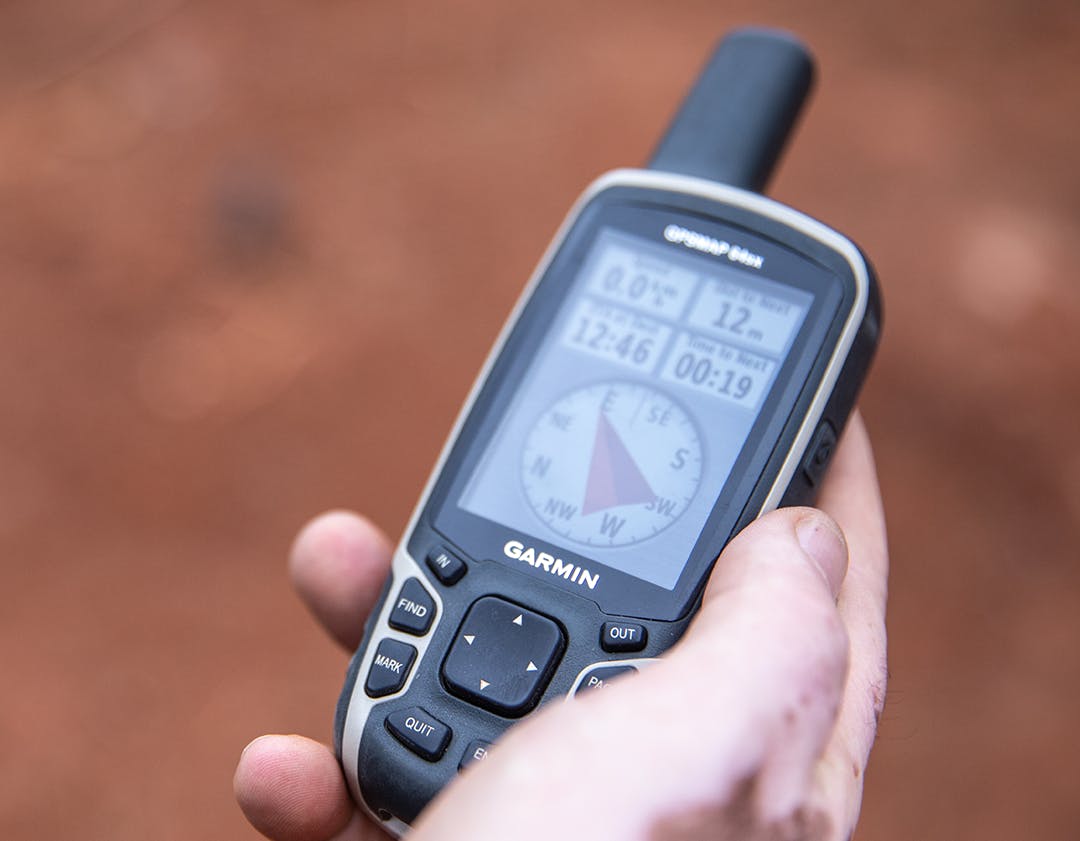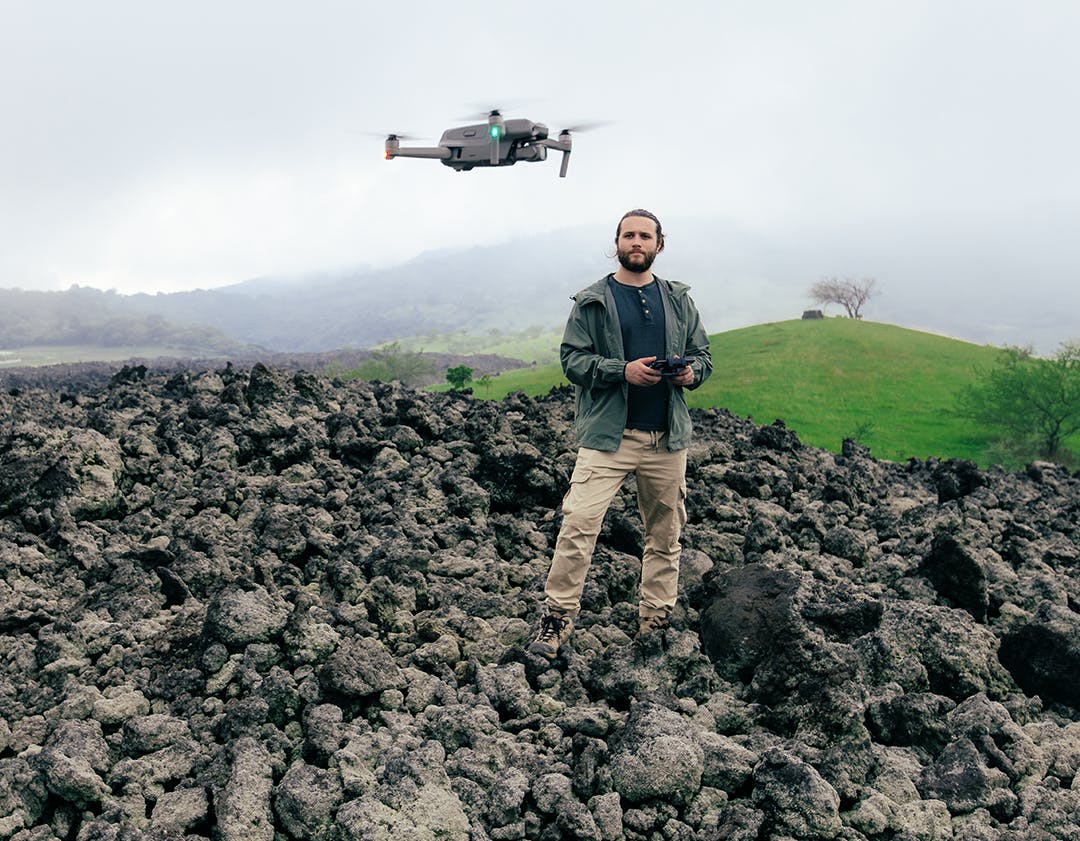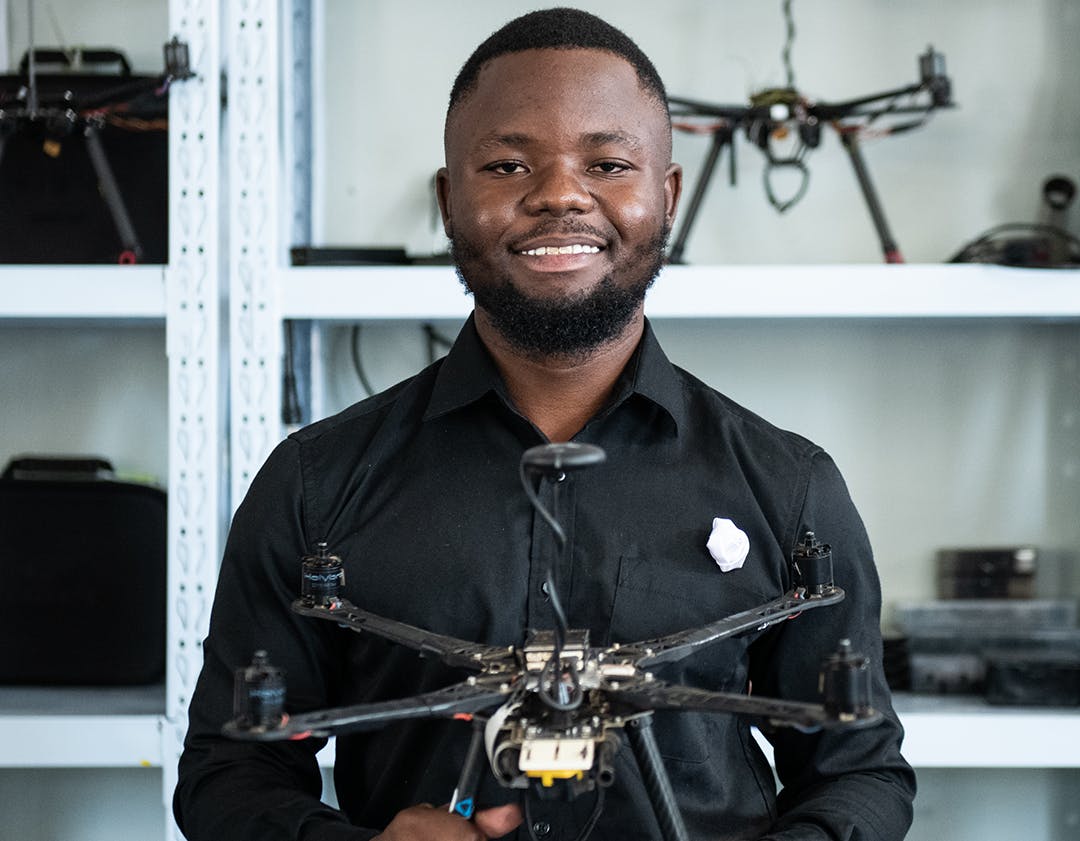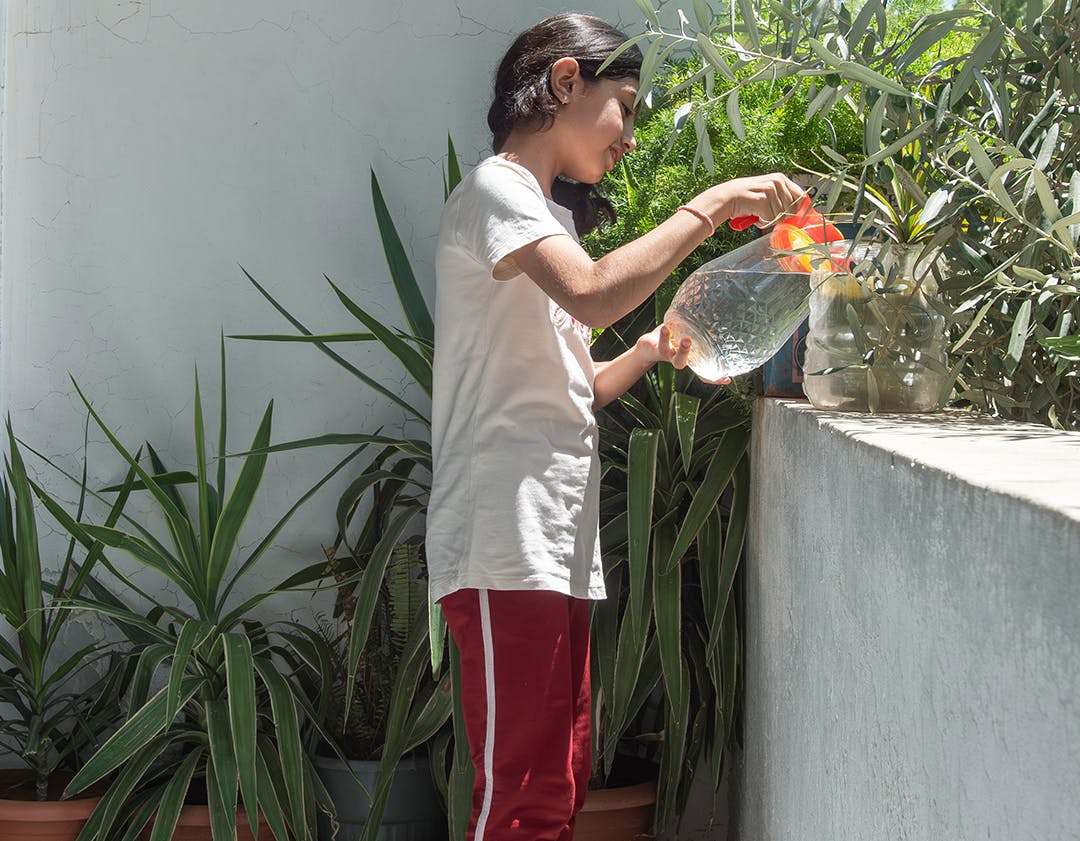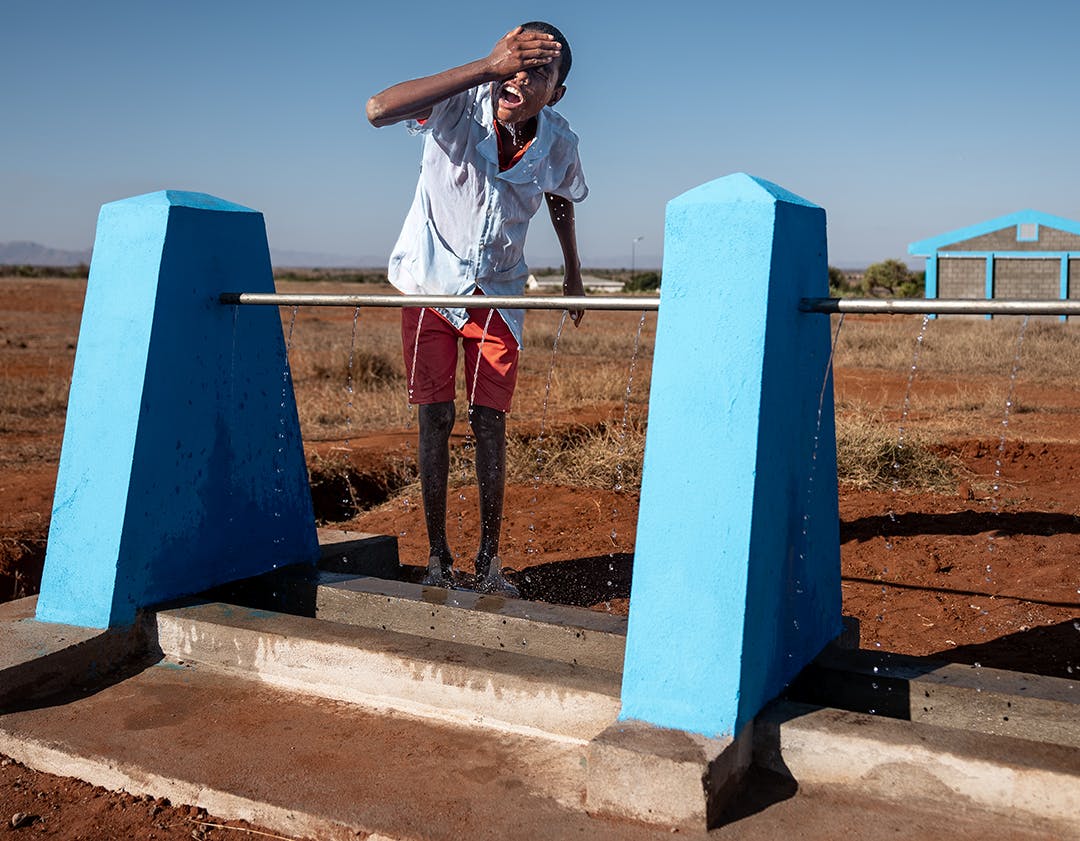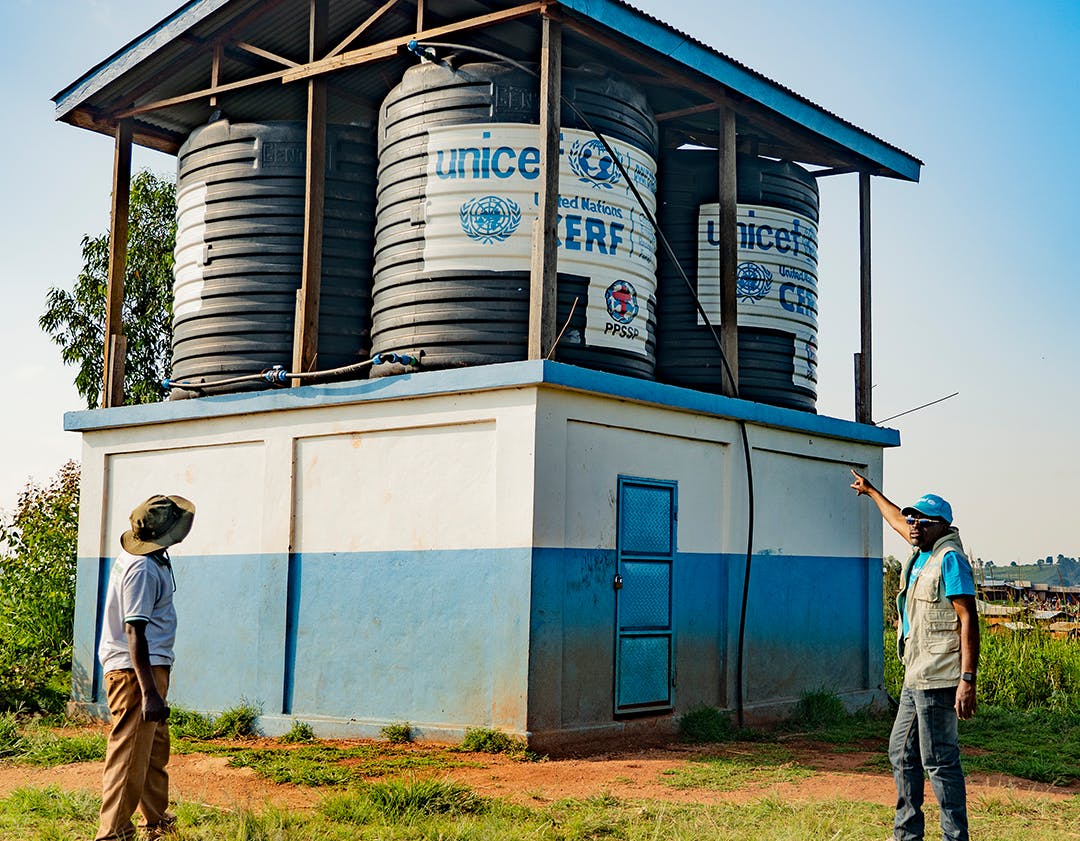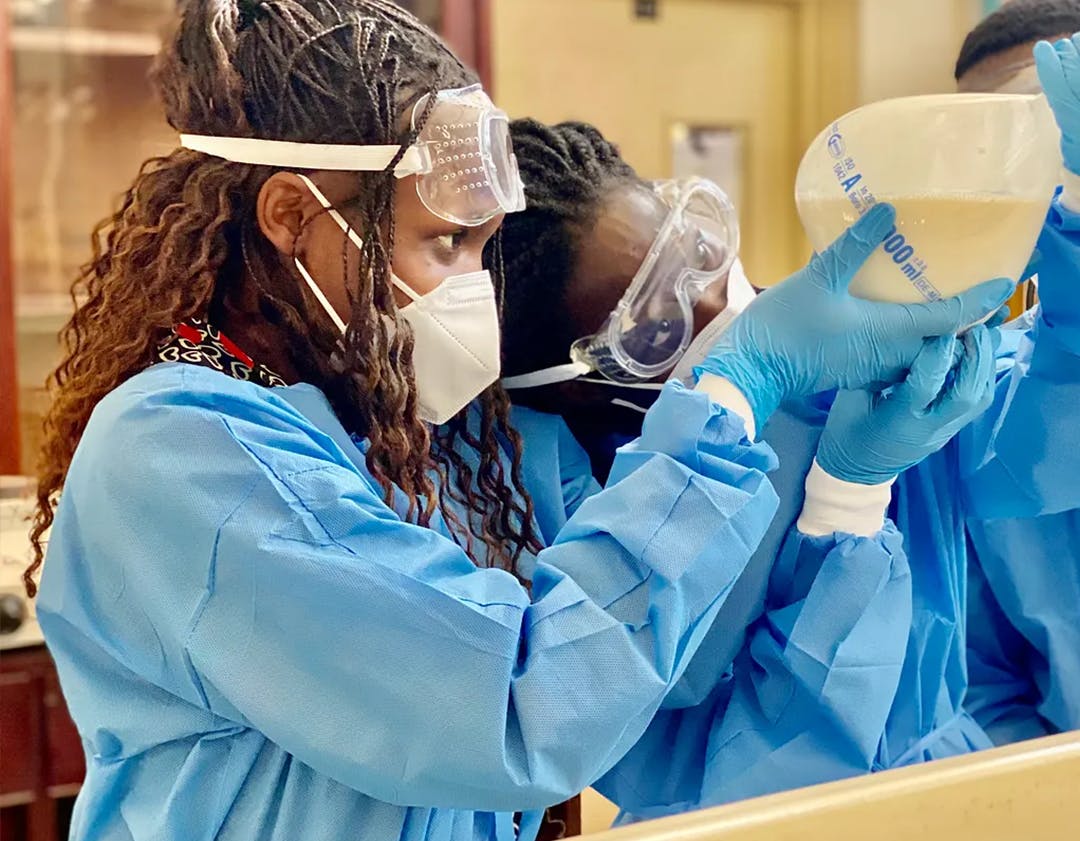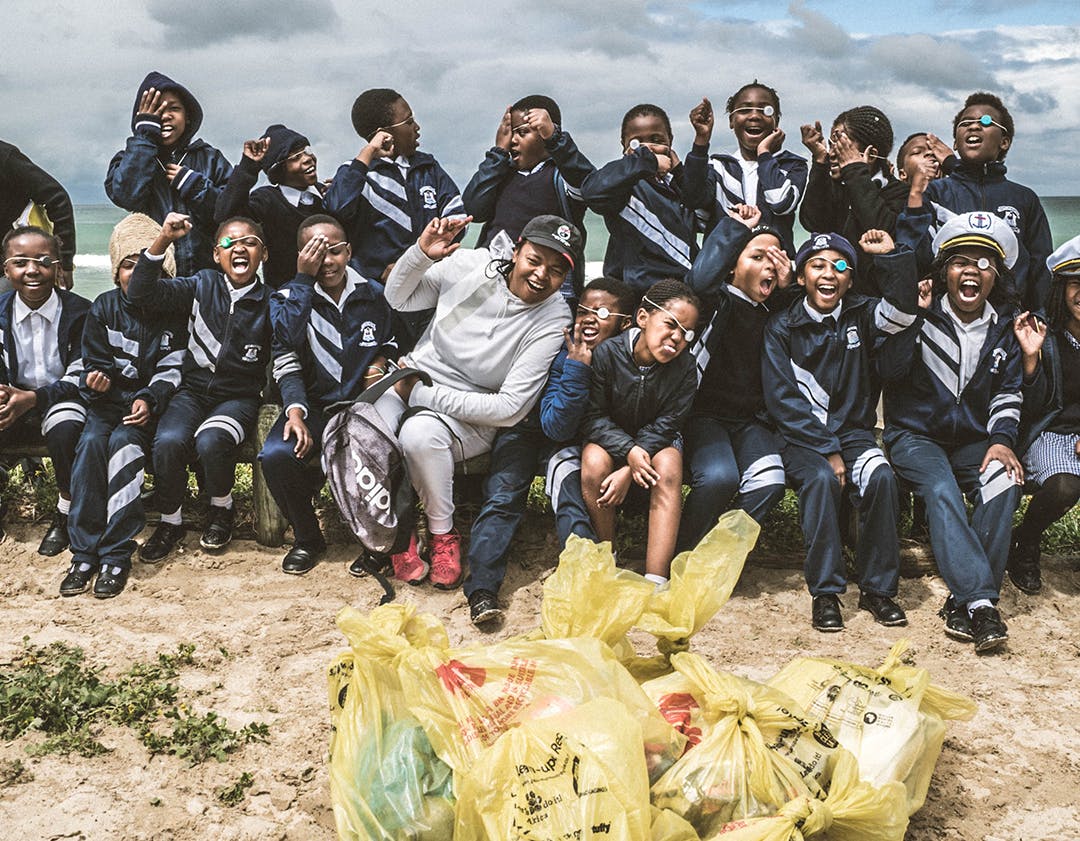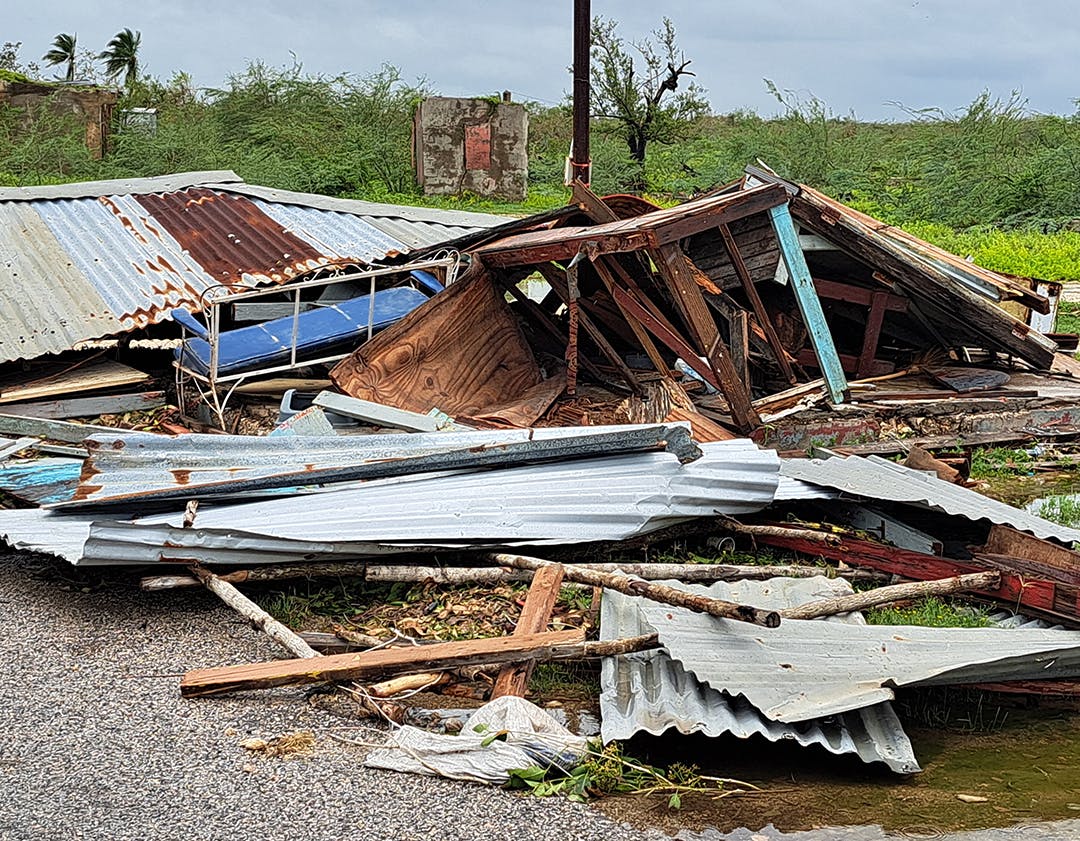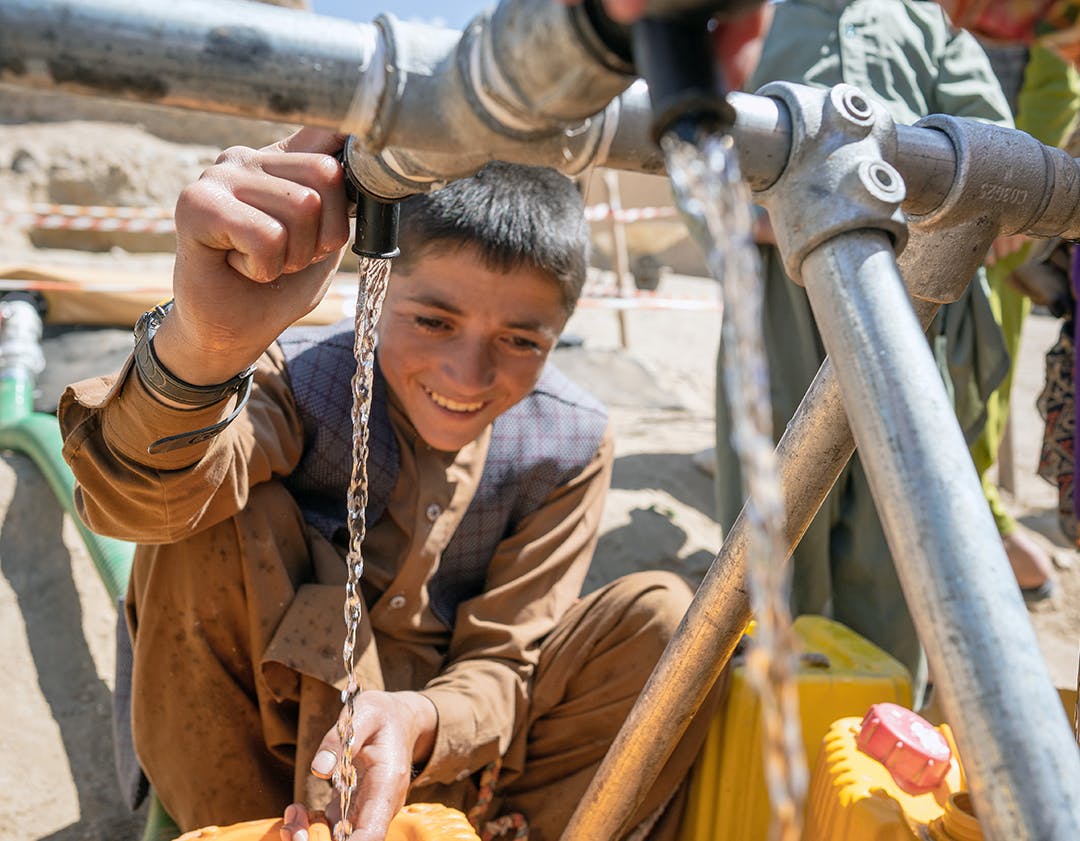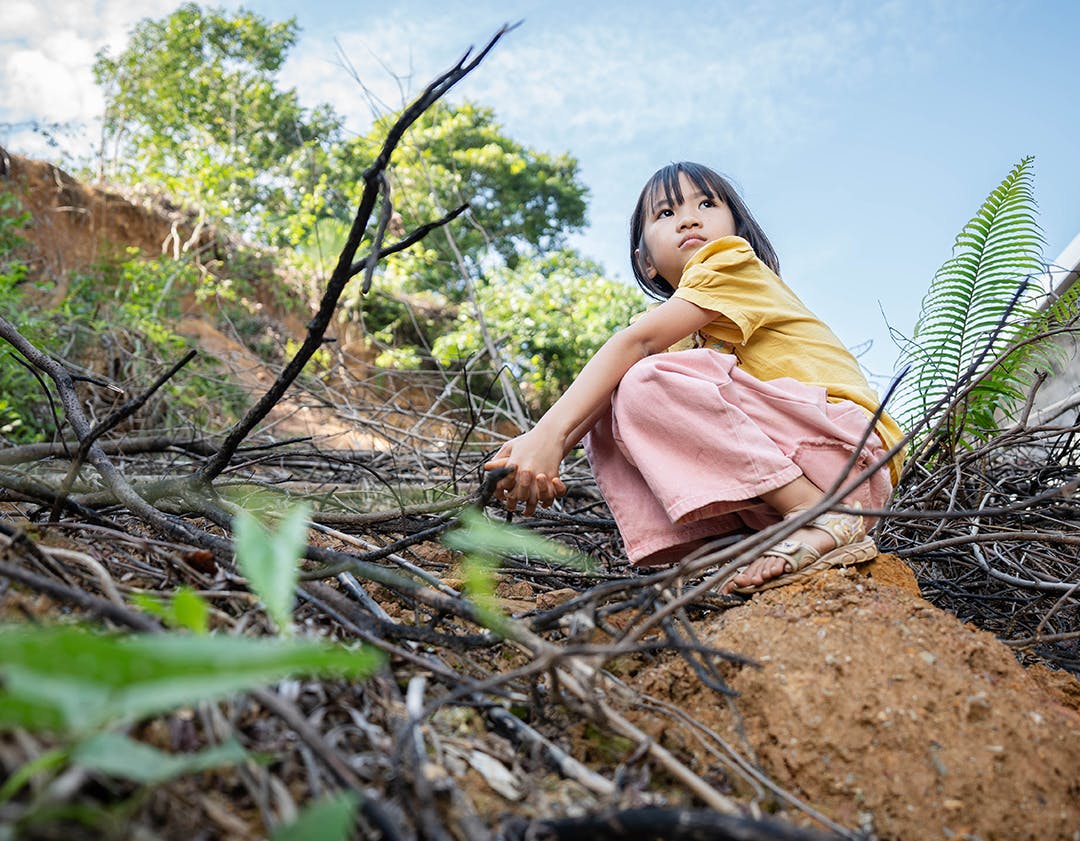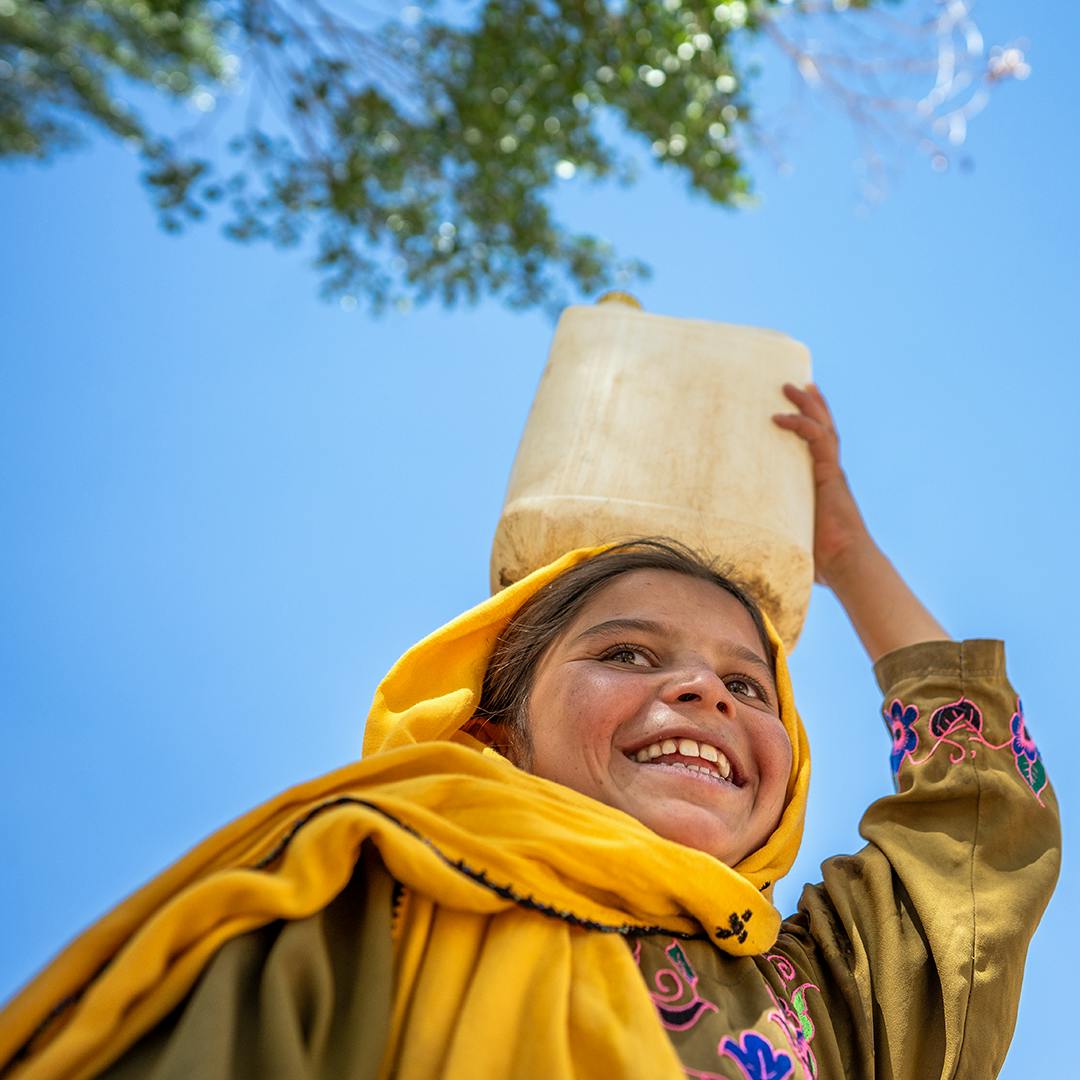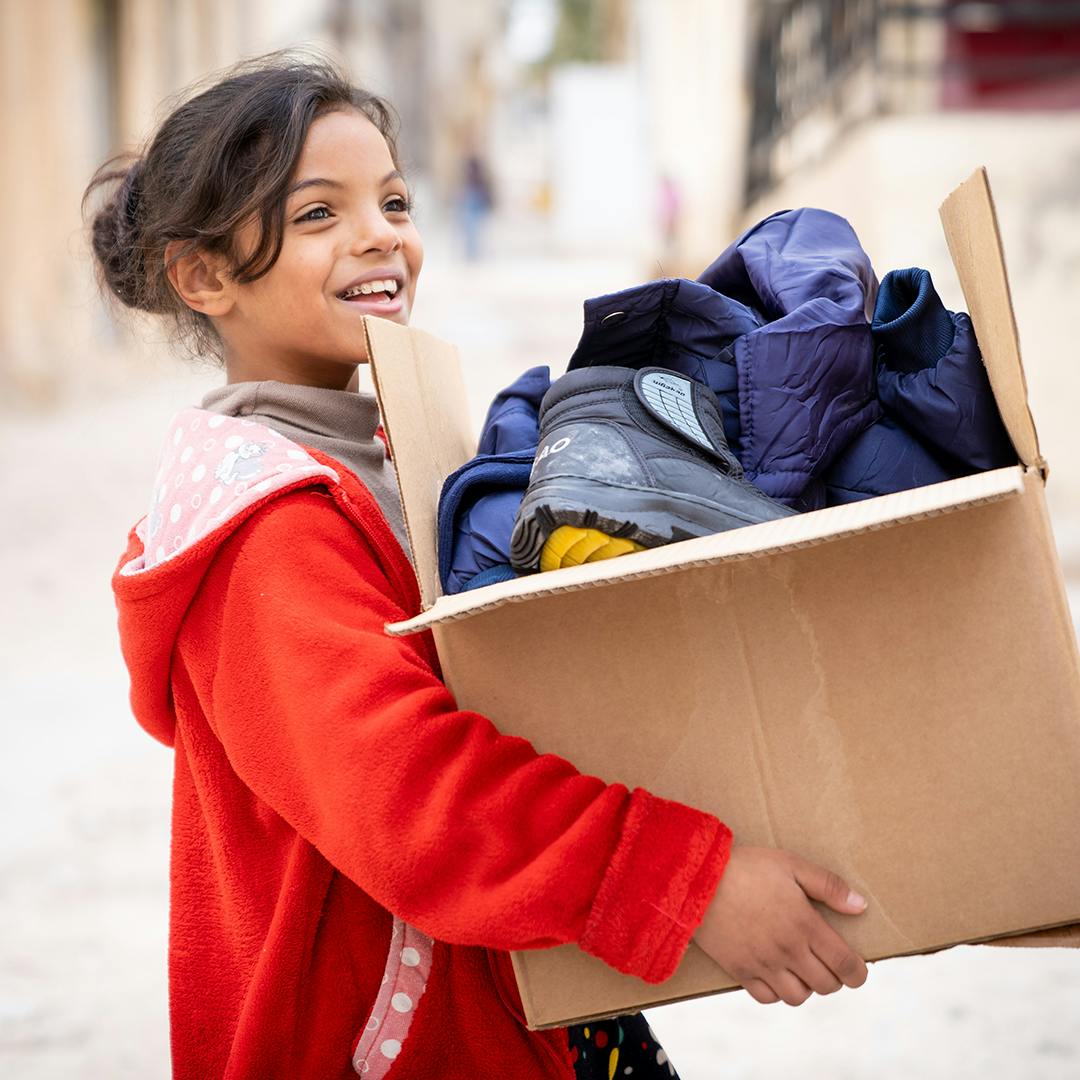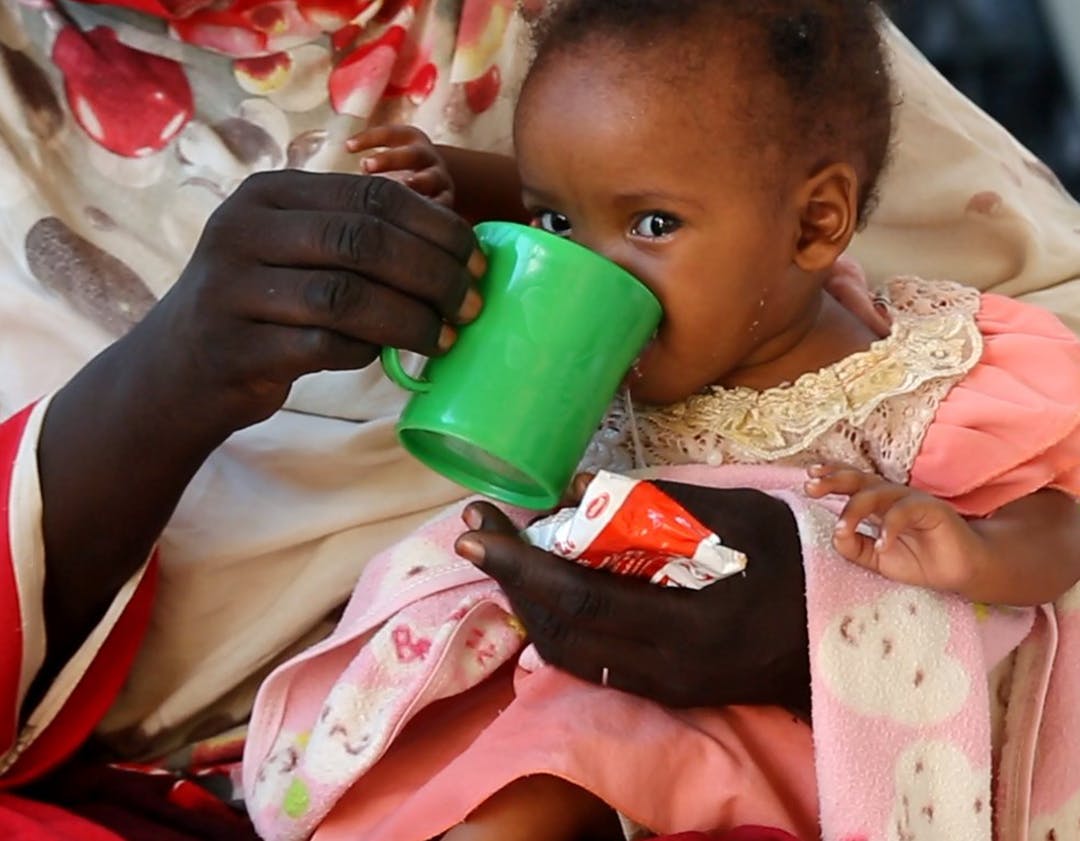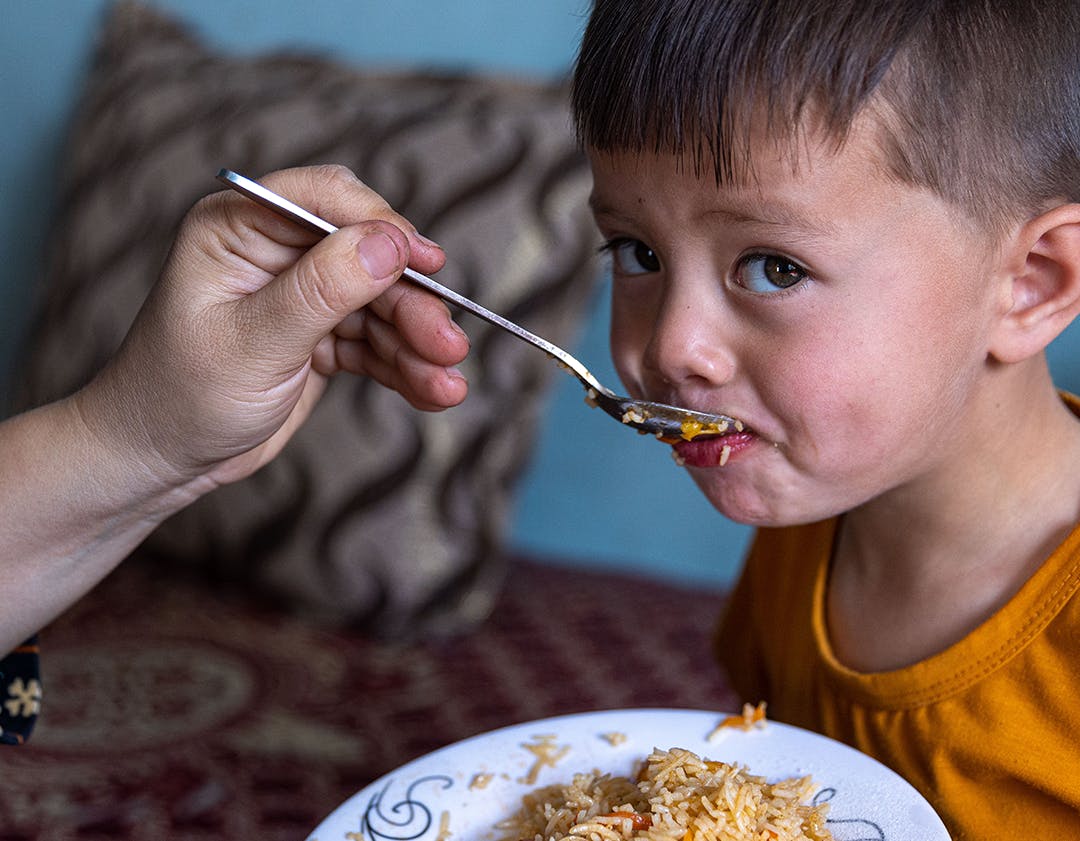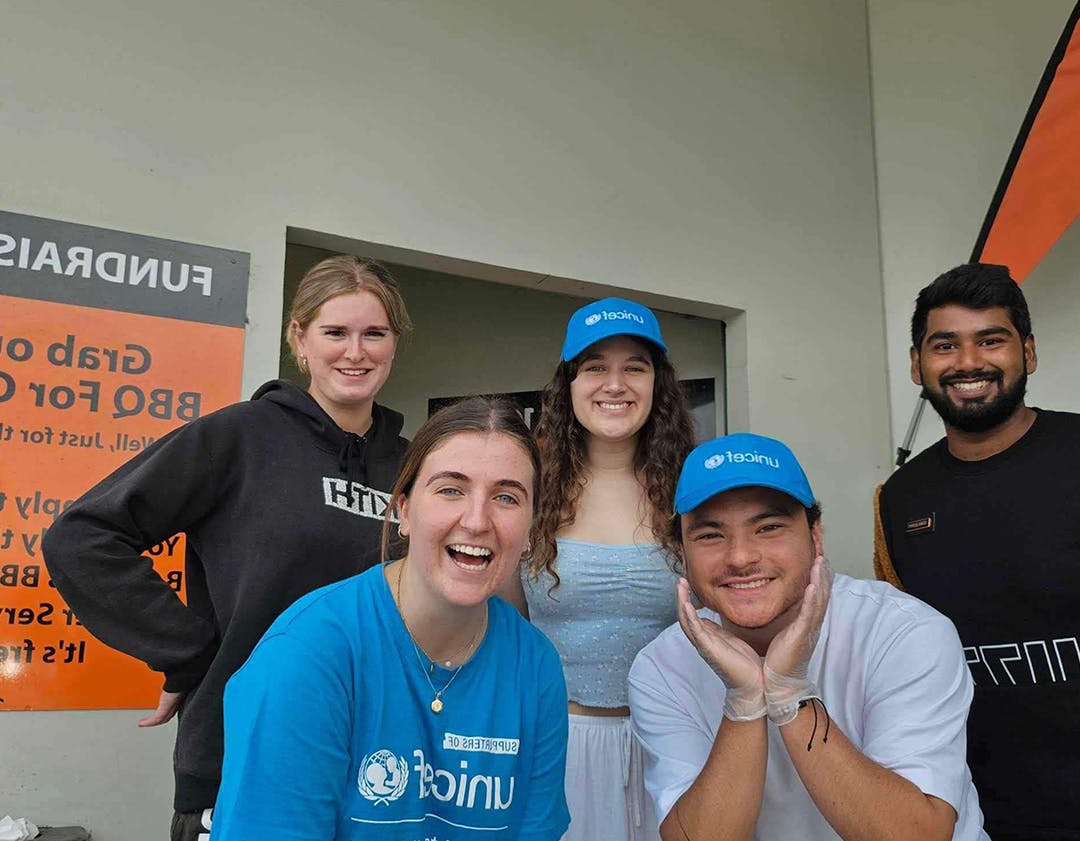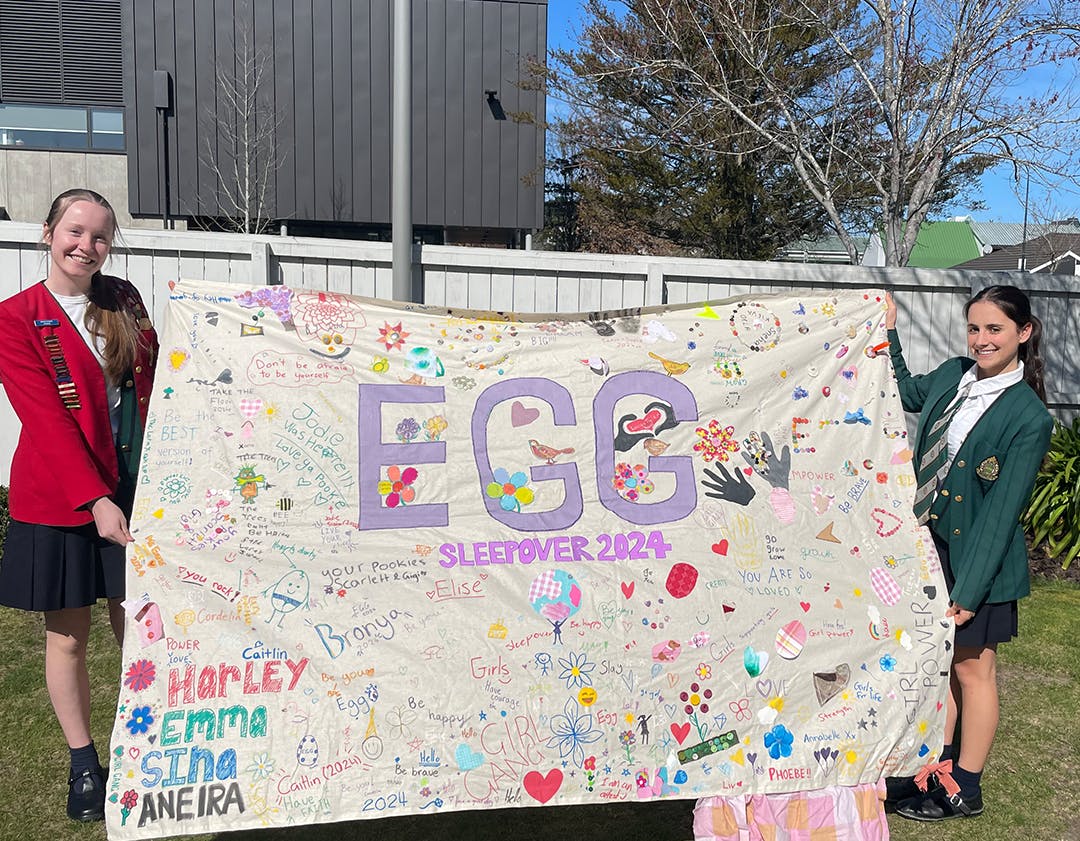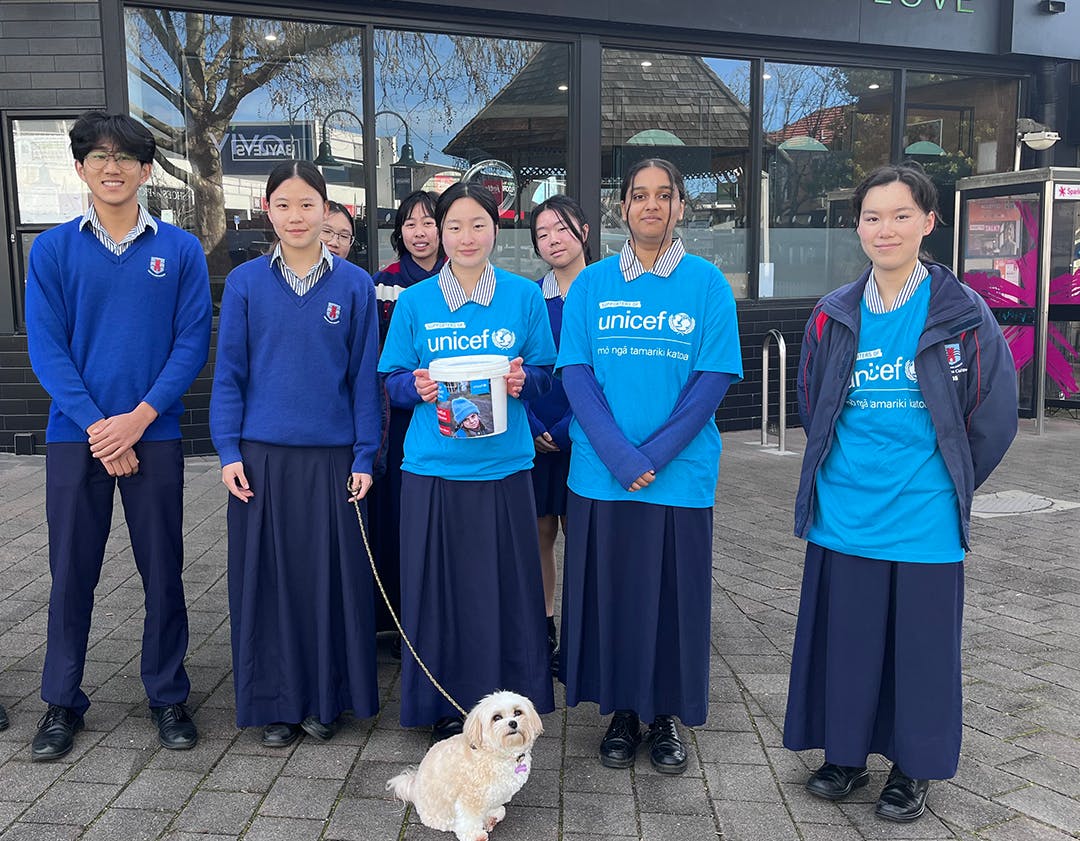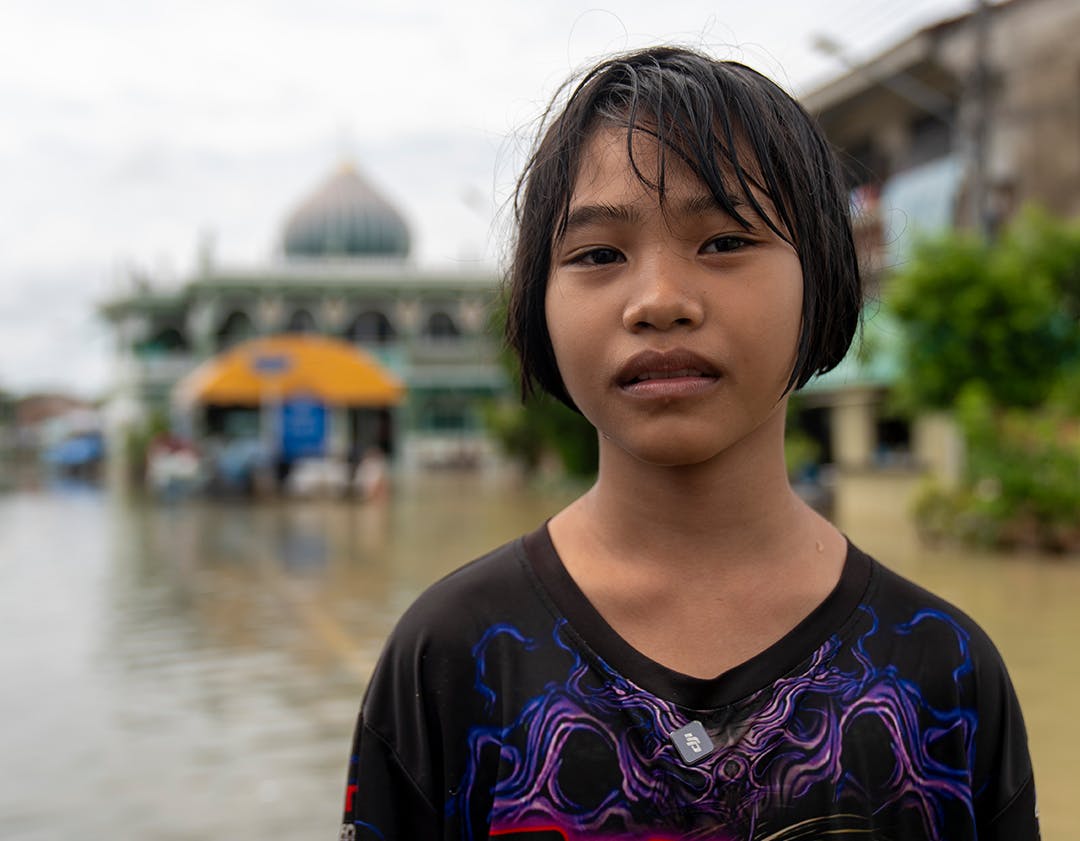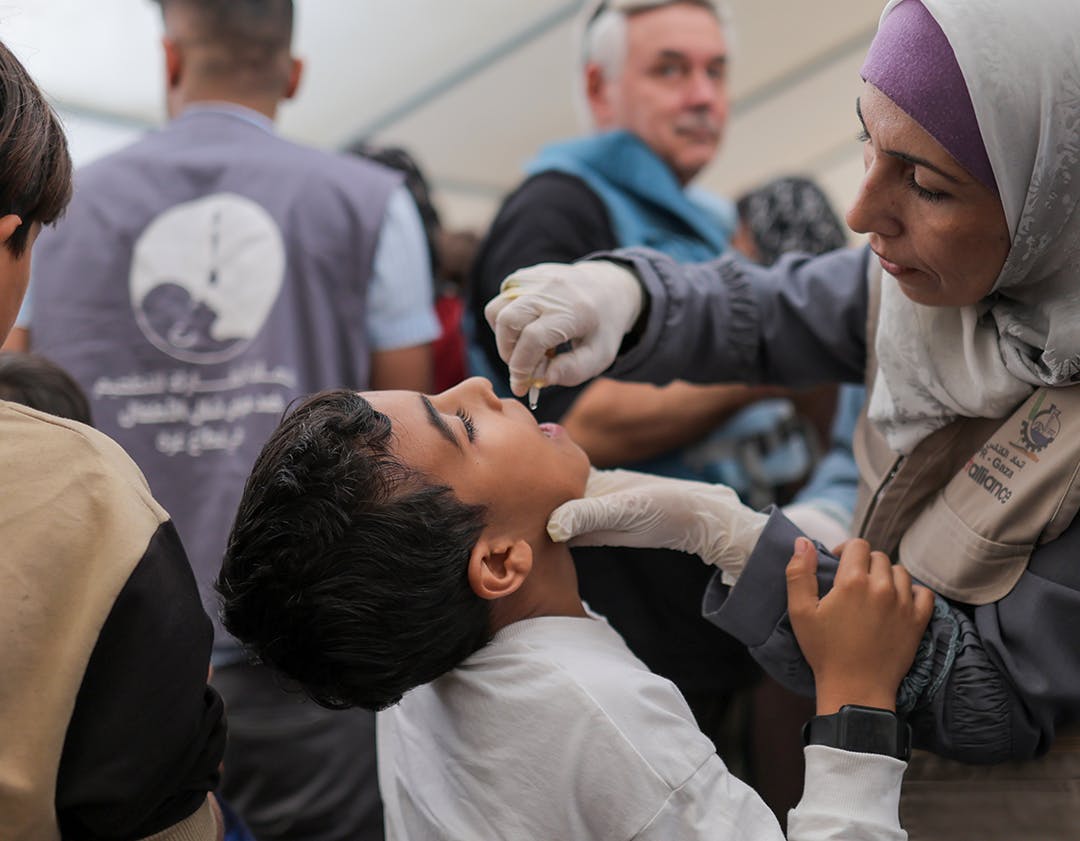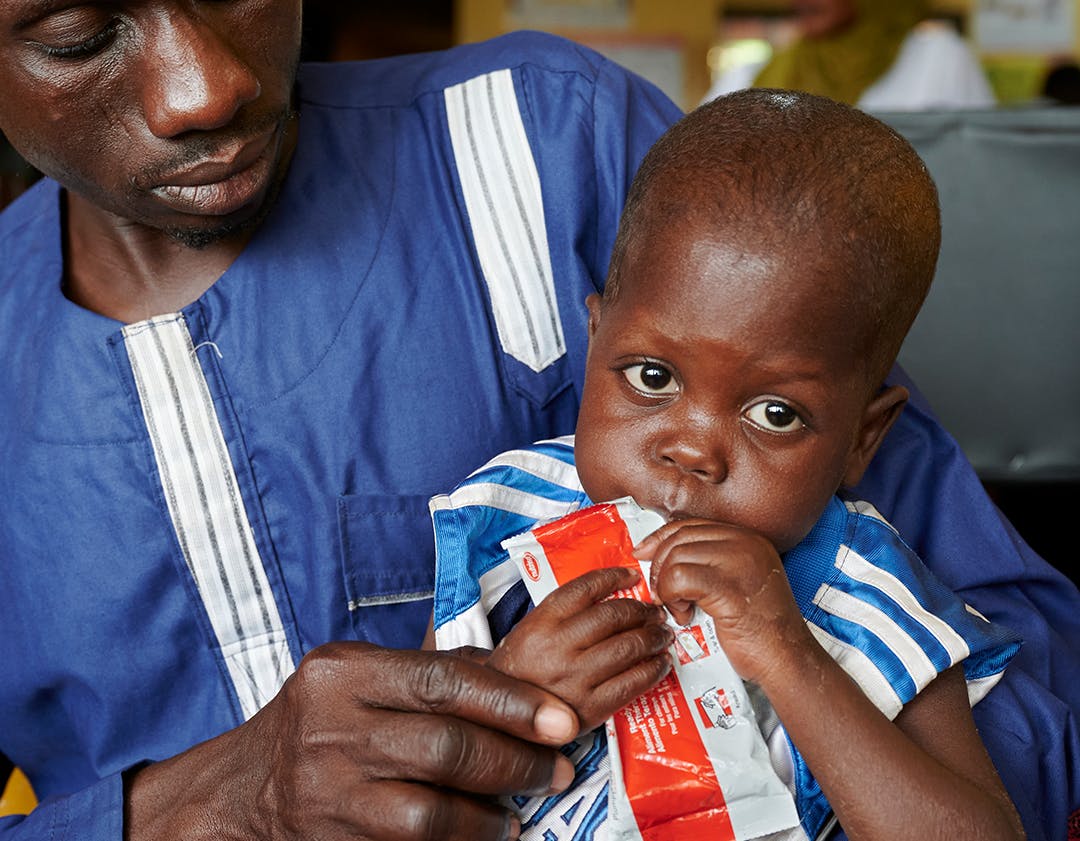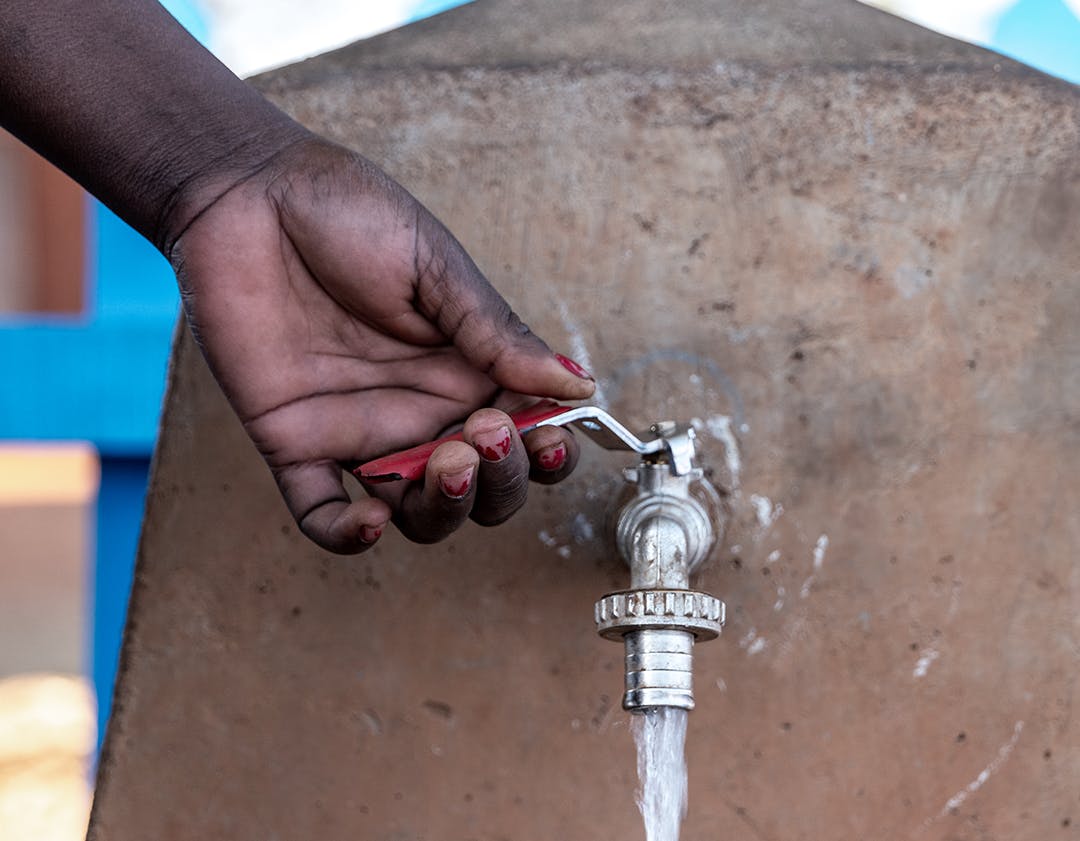
Your Impact
In 2024
Home
Your Impact in 2024
A lot can happen in a year, and 2024 was no exception. Let’s take a look back and reflect on everything UNICEF supporters and donors helped achieved for kids – both here in Aotearoa, and around the world.
From empowering vulnerable communities with climate-resilient water, to our relentless commitment to delivering aid in Gaza - we’ve done whatever it took to put in the mahi for every child. Every day.
26.4
million
people received primary healthcare
17.4
million
people accessing safe, clean water
9.7
million
children in formal or non-formal education
Ngā Mihi Nui
Woven throughout everything we do, is our drive to inspire positive change for children everywhere. We collaborate with government agencies, businesses and people in power to invest in the futures of kids.
Whether it’s strengthening access to basic rights and nutritious food, or developing world-leading education initiatives, we’re doing everything we can do to protect and empower kids! But we couldn’t do any of it without your generosity and support.
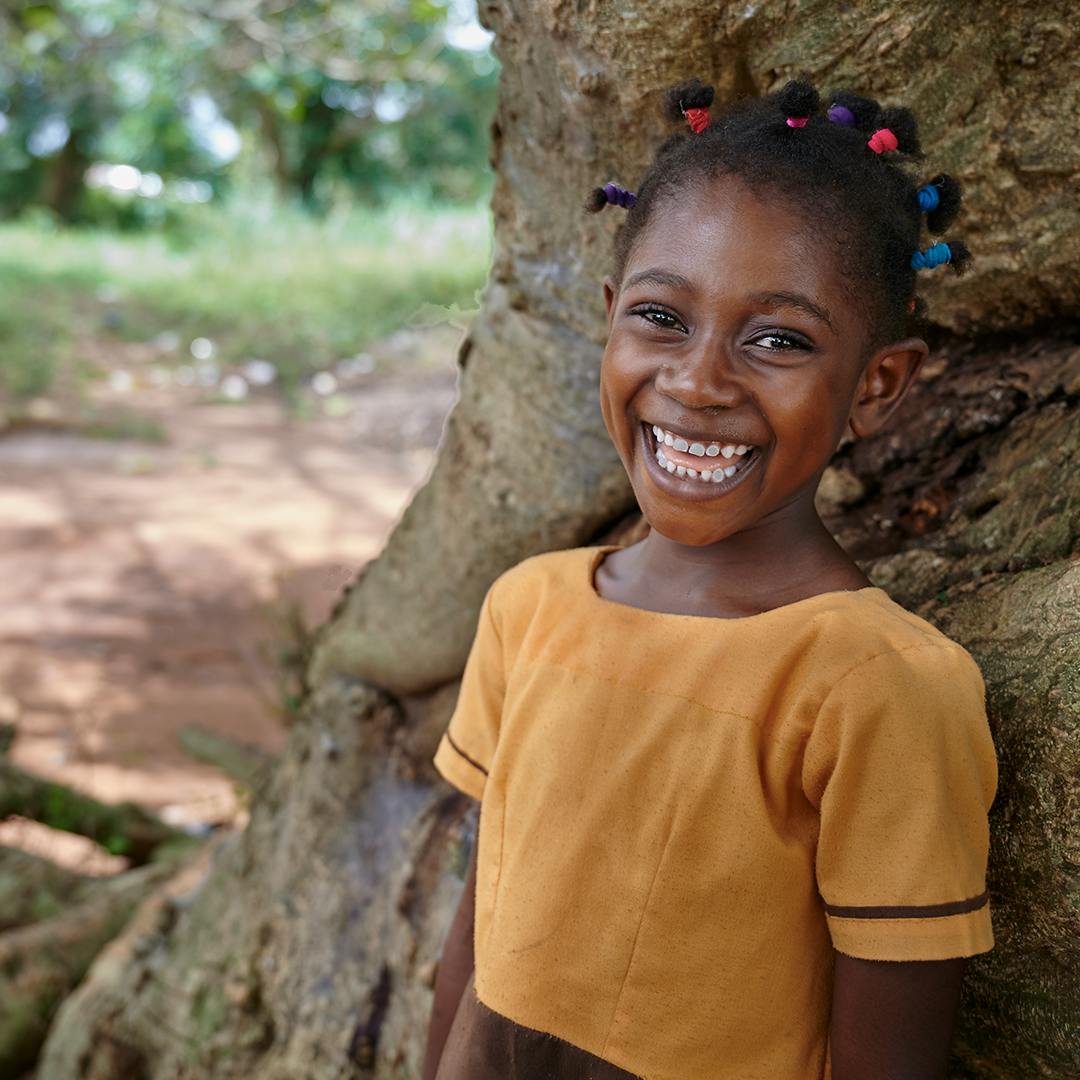
Our committed Global Parent donors helped us to innovate and push boundaries.
We’ve developed groundbreaking technologies and first-of-their kind projects that’ll improve the lives of kids in the most remote parts of the world. This is especially important as we continue to battle against the increasing effects of climate change.
The generosity of Greatest Need donors supported our rapid response in the aftermath of conflicts and natural disasters.
This life-saving humanitarian aid dovetails into our dedication to helping children and communities recover long after the headlines fade – building back better and more resilient than before.
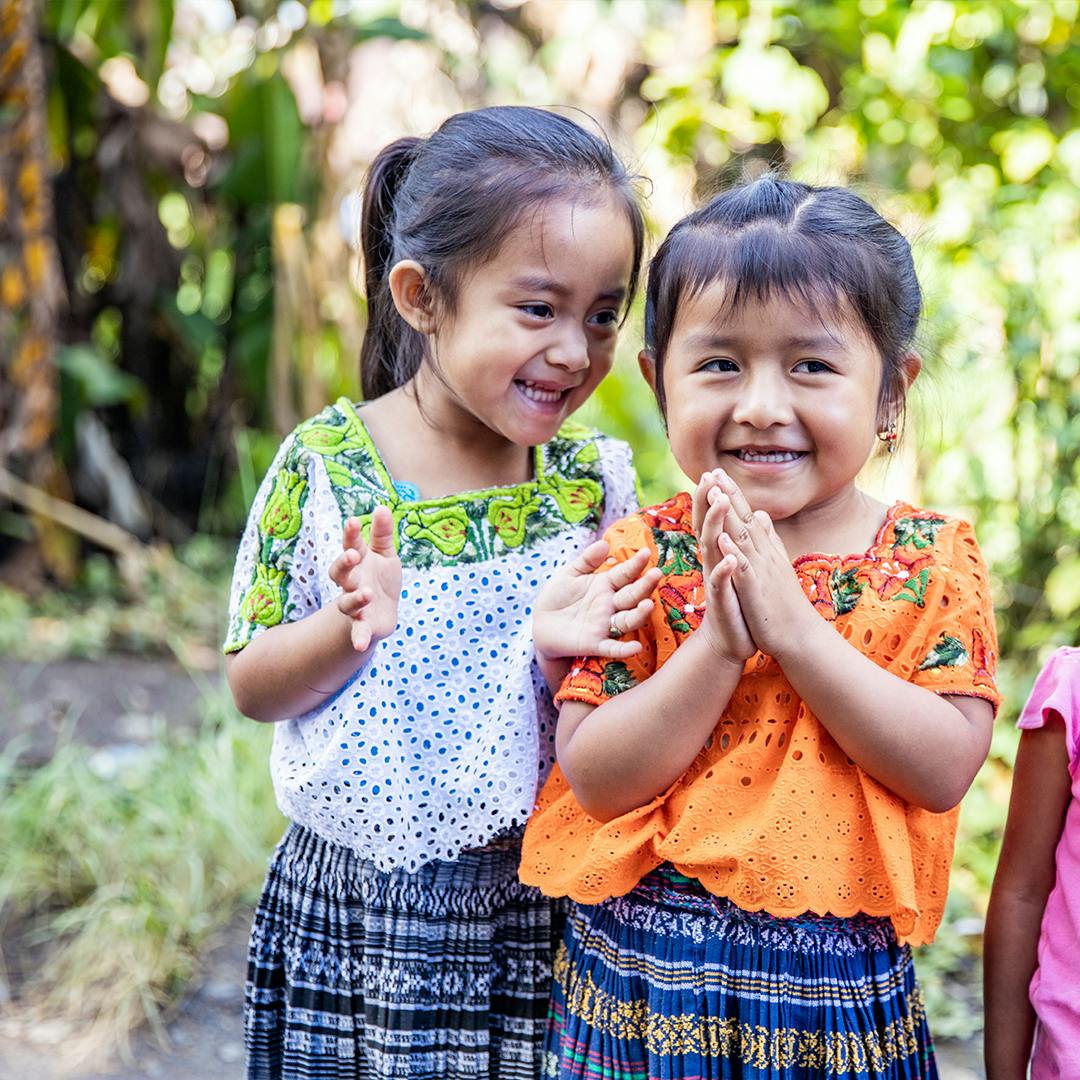

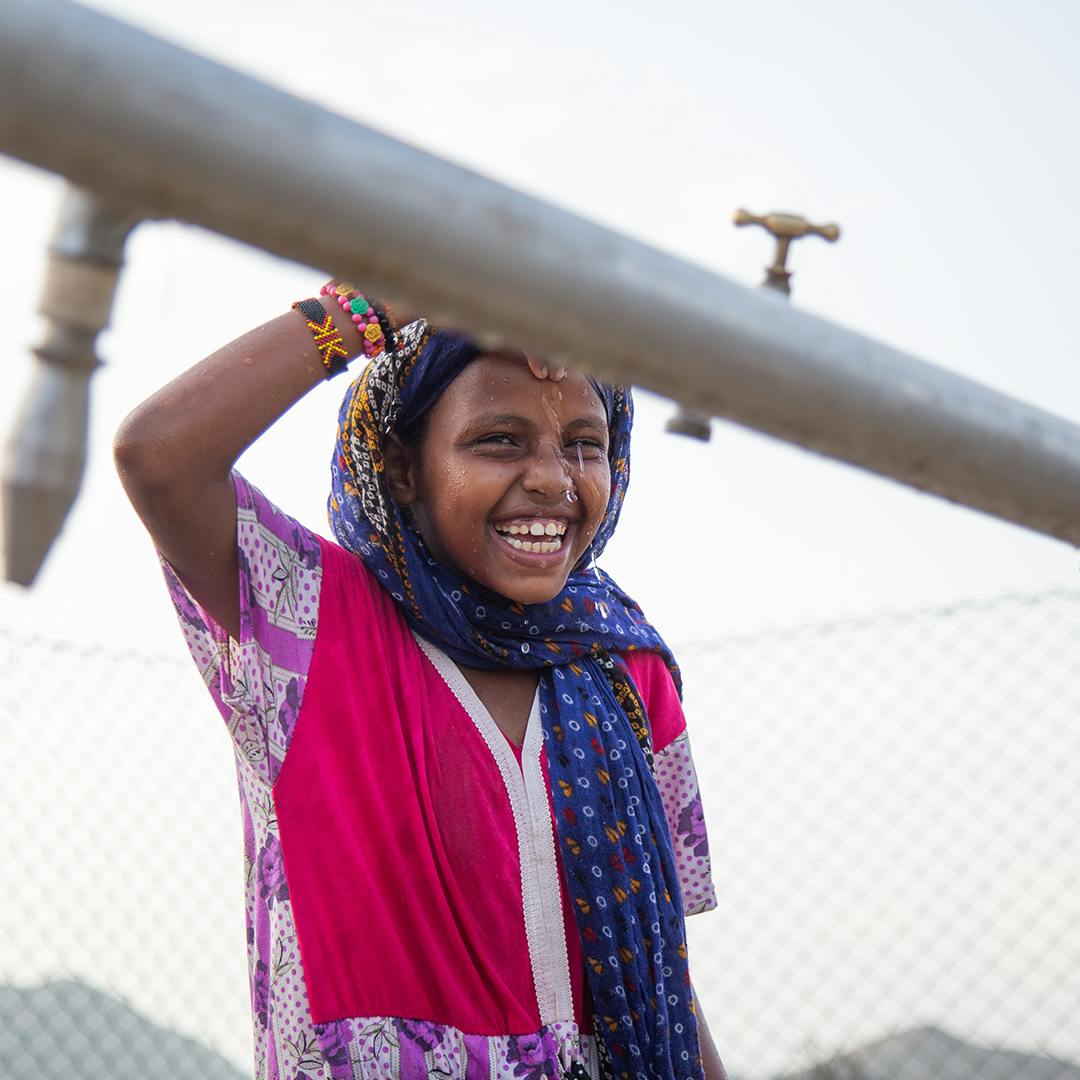
Investment in innovative projects aimed at long-term results is how we’re addressing the complex and deep-rooted challenges facing kids today.
We work with governments, humanitarian agencies, and young people themselves to support sustainable, locally driven development.
Through our dedication to breaking the poverty cycle, we’re providing real, lasting solutions that empower the next generation and pave the way for a brighter future!
Innovation and Tech
The visible impacts of climate change on the world’s most vulnerable kids can already be seen. When extreme floods damage hospitals and schools, children lose their access to medical care and education. Rates of food insecurity and preventable disease can soar when communities are faced with ongoing drought. Climate-resilient facilities and green technologies are just some of the important new tools we’re using to fight back!
Game-changing Vaccines!
No child should be left vulnerable to serious and preventable diseases. Plain and simple.
That’s why UNICEF uses our scale and buying power to purchase more vaccines than any other organisation in the world. We then harness our worldwide network and 77 years of experience to turn those vaccines into lifesaving immunisations.
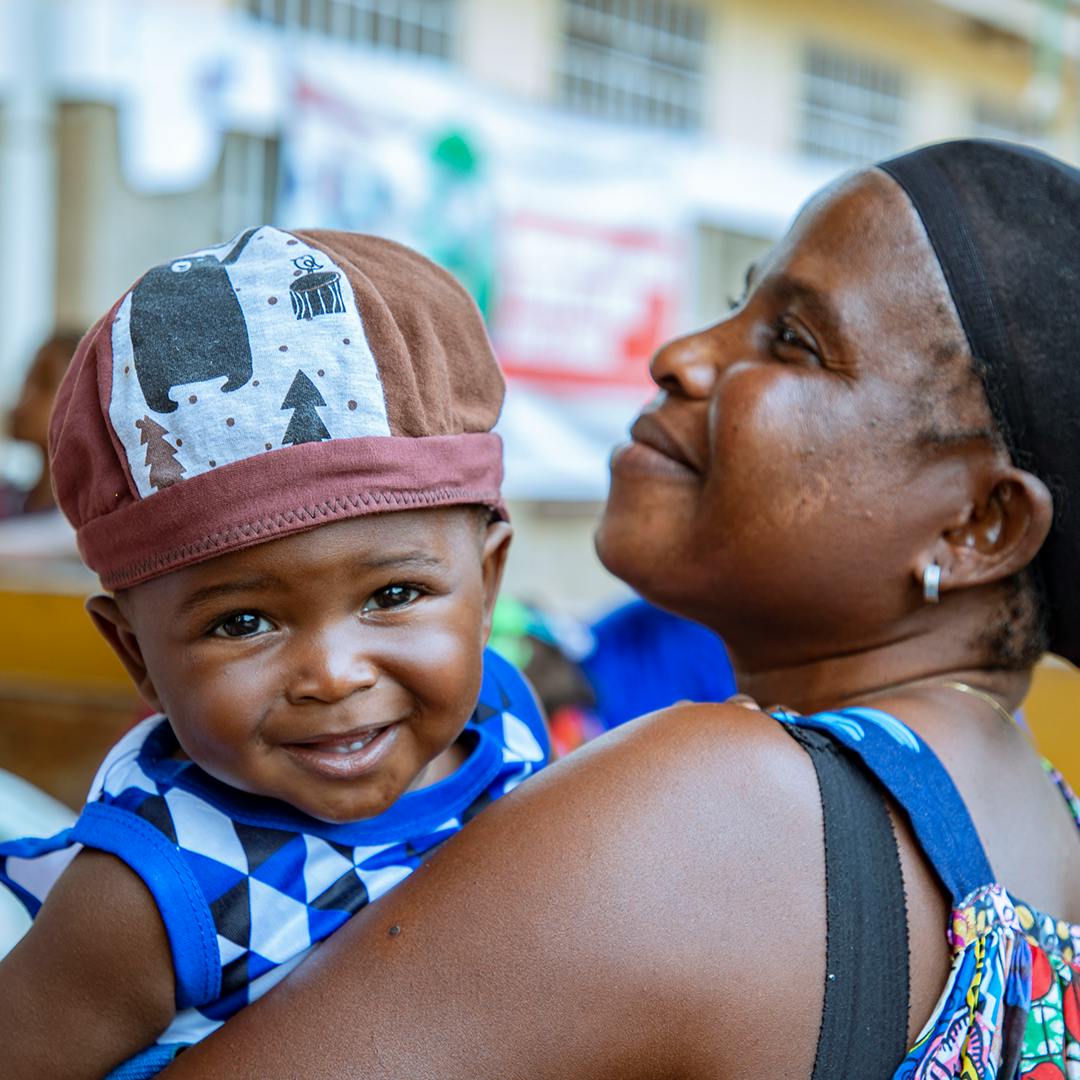
First-ever Malaria Vaccine
35 years in the making, and now this groundbreaking tool is reaching the countries that need it most. We’re set to transform the lives of children across Africa with 18 million doses of the world’s first malaria vaccine. Amazing.
For too long, malaria has been taking the lives of kids less than five years old – with a million deaths in 2020 alone. That’s a heart-breaking rate of nearly one child per minute. But with this first-of-its-kind vaccine, hundreds of thousands of kids will be protected against this preventable disease.
Since the pilot launch of the vaccine in Ghana, Kenya and Malawi, 2 million children have received the four doses needed for maximum protection. Already, deaths have dropped by 13 percent, with less kids ending up in hospital.
This is only the beginning – as the vaccine reaches more children, the number of lives saved will continue to climb!
M-pox Vaccine Deal
A huge step forward in providing a coordinated response to the growing monkeypox crisis.
We’ve signed an agreement that secures the supply of the MVA-BN mpox vaccine at the lowest market price. A more affordable vaccine for at risk children and communities, sets the stage for lasting vaccine access by 2025!
To ensure vaccine access for the 77 countries at the frontline of the crisis, we negotiated a price of up to US$65 per vaccine dose. The deal includes a firm commitment by UNICEF to deliver up to 1 million doses in 2024.
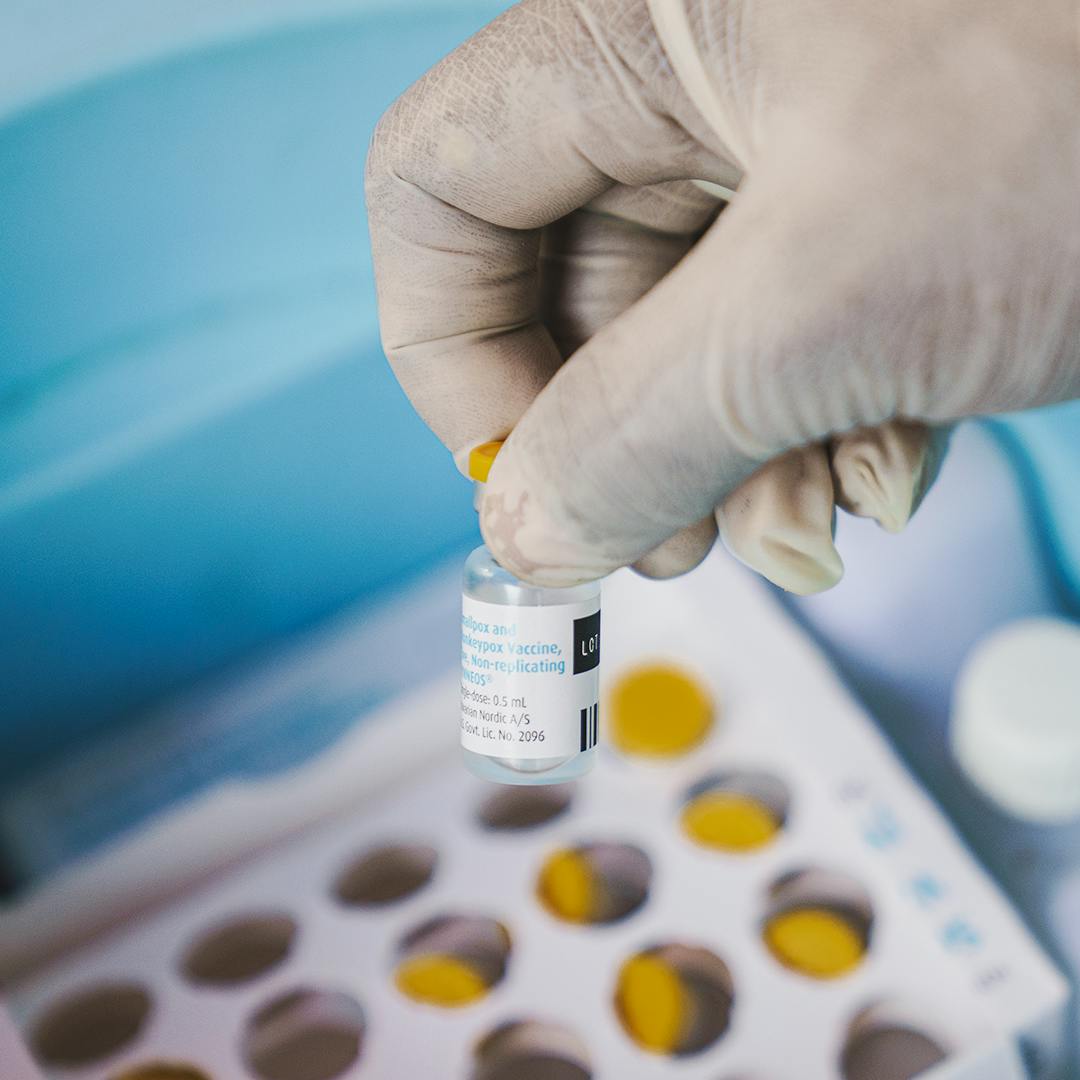
The Trickle-down Effect of Clean Water
Kids stay healthy and ready to tackle anything when they have access to clean water, toilets, and good hygiene.
When they don’t, they get sick from preventable illness, they have less time to learn, play and have fun. We're backing projects that empower communities with climate-resilient access to safe, clean water – no matter where they are in the world!
Climate Action led by Youth!
Young people bring tech skills and fresh ideas that perfectly align with our social development goals. Supporting the ambitions of young people who want to make a difference makes our work come full circle!
Innovation 30 is a UNICEF initiative that amplifies young entrepreneurs in the climate action space. With a focus on solutions to problems presented by climate change, young innovators take centre stage as stakeholders, technical experts and designers.
Here’s a couple projects that’s we’re excited about!
Empowering women and girls!
Girls and women are hit the hardest by climate change. Estimates predict that, by 2025, climate change could hinder 12 million girls from completing their education. When a crisis strikes, girls are often expected to leave school and take on additional household responsibilities.
By strengthening climate-resilient facilities, we're also empowering young women and girls to stay in school and continue their education!
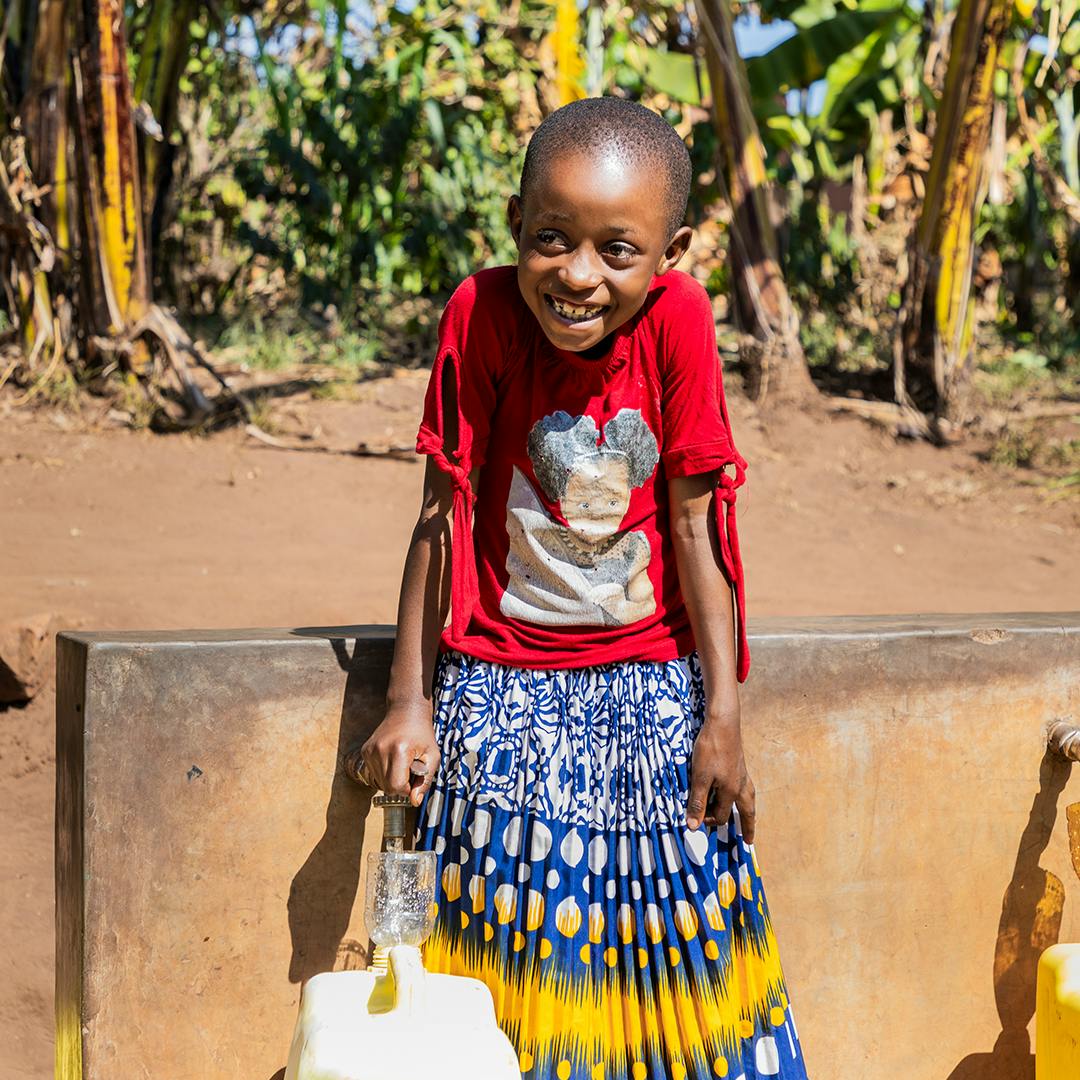
Going solar in Rwanda
It’s common in Rwanda for girls and women to travel long, unsafe journeys to collect water for their families. The scorching heat is unforgiving, and the paths are treacherous. Girls are left vulnerable to risk of violent or sexual assault.
In the Kirehe District, UNICEF supported the conversion of a diesel-run water supply system into a solar-powered system. The distance to fetch water is much shorter, improving the lives of around 11,000 girls and woman living in the community.
With less time spent travelling, girls face less risk of injury and abuse and can instead focus on rest and learning.
Growing their own in Bangladesh
We partnered with local authorities to launch a programme that enables under-resourced families, led by mothers, to generate their own income. In Cox’s Bazar, Bangladesh, poverty, malnutrition and child labor have worsened because of climate emergencies.
Long-lasting floods, cyclones and droughts leave families vulnerable and desperate to make ends meet. This initiative helps families set up their own micro-agriculture garden, giving mothers the opportunity to provide their kids with healthy and diverse foods!
They can also sell their produce at local markets to generate additional income for their families.
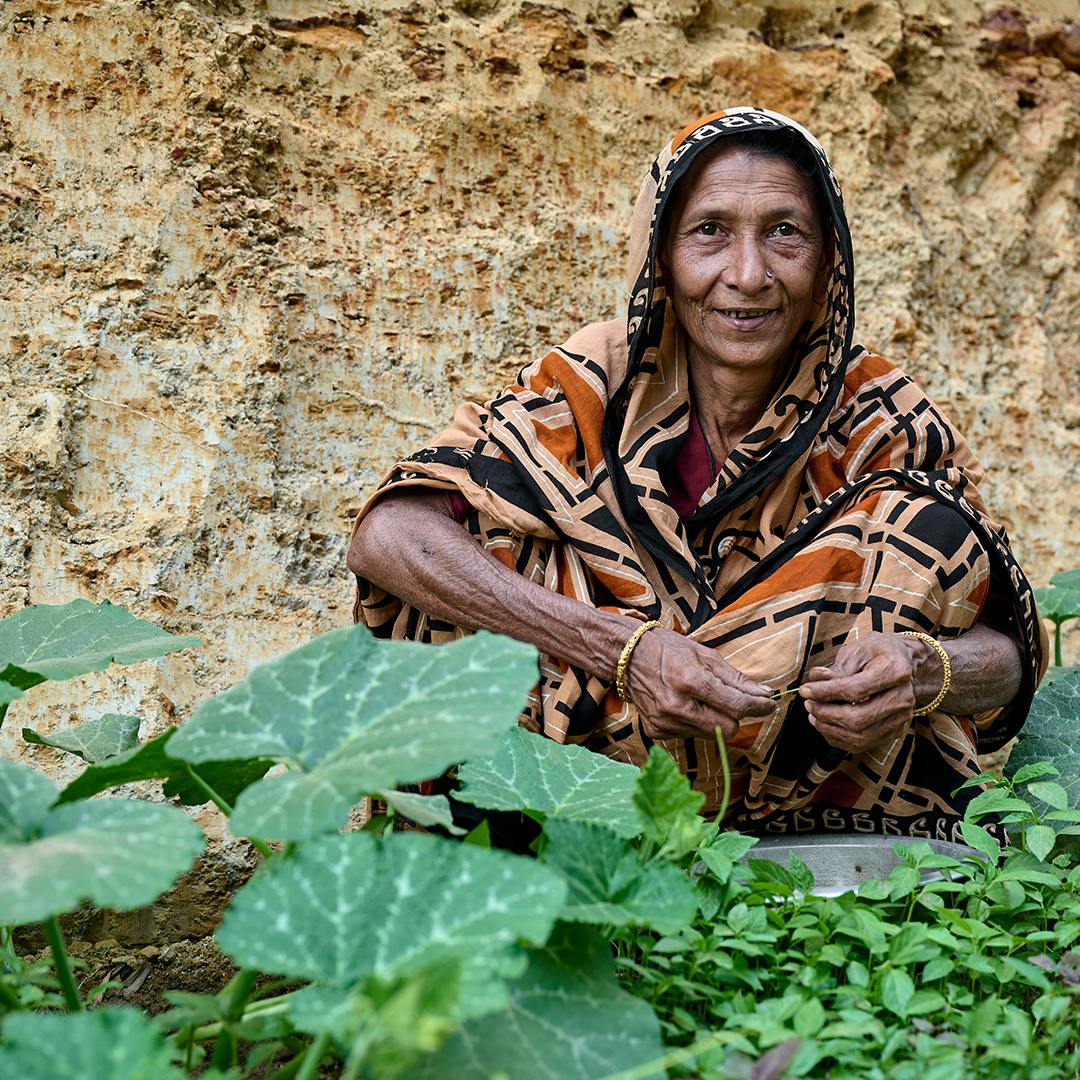

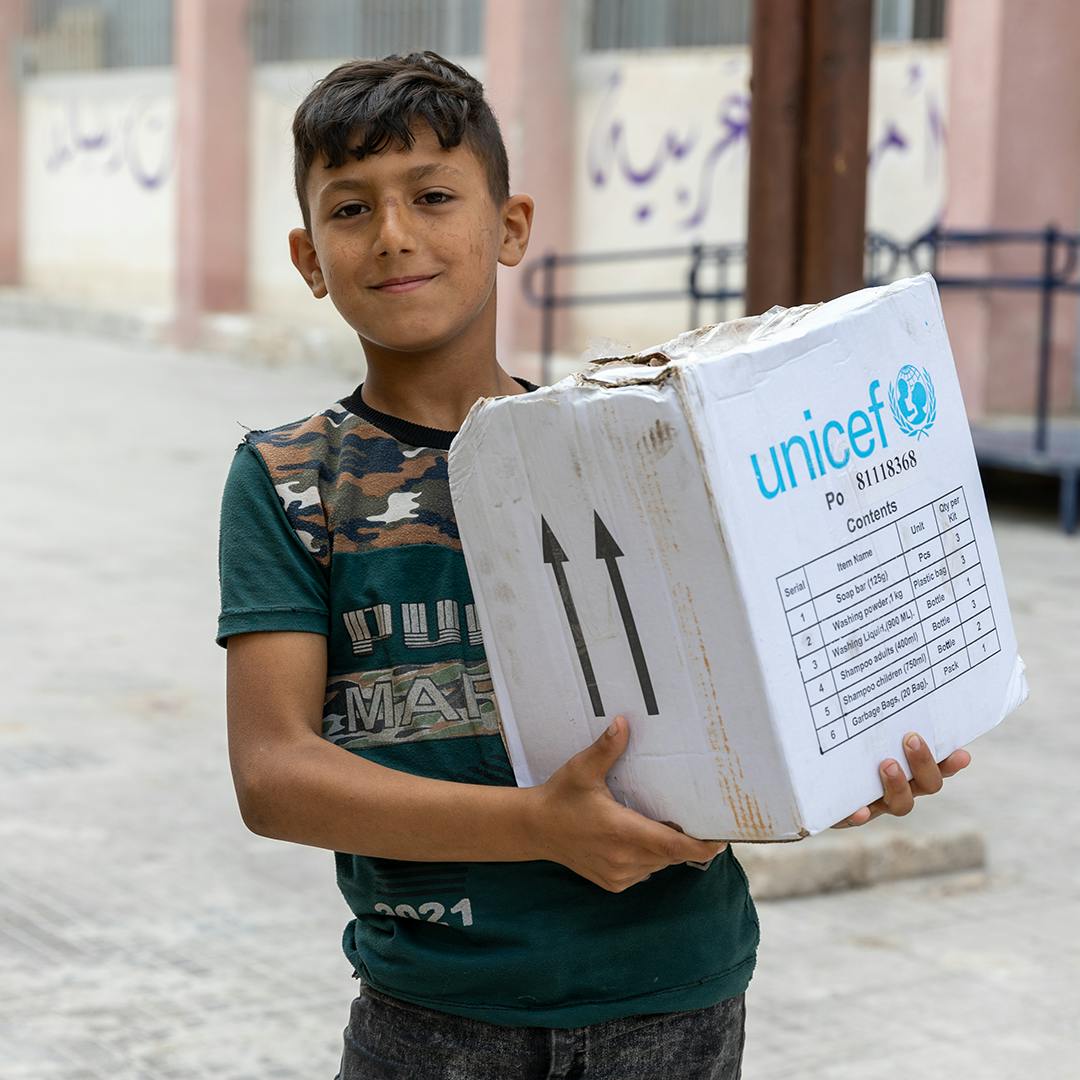
Our dedication to supporting kids before, during and after emergencies has no limit. With a presence in 192 countries, we’re already there when a crisis strikes. Our global network of supply hubs and local partners allow us to provide life-saving supplies anywhere in under 48 hours. We also remain on the ground long after headlines fade.
Each year, UNICEF responds to over 300 emergencies, but addressing kids’ immediate needs is only part of our mission. We focus on progressive, lasting solutions - so the effects of conflict and natural disaster don’t stand in the way of children building happy, healthy futures.
Gaza Crisis
It’s been over 12 months of unbelievable suffering and grief for millions of people in Gaza. Kids caught up in the violence have been the urgent focus for thousands of UNICEF staff.
Right now, there are severe limitations on the delivery of humanitarian aid in Gaza, but we’re working relentlessly to get as many supplies through as possible. Despite obstacles of bombardments and civil disorder, we're committed to delivering as much life-saving aid as we can.
We’re working with partners to protect kids in the Gaza Strip against Polio. The three-phase vaccination campaign is still ongoing due to humanitarian pauses, but we aren’t giving up. During the second phase, 216 teams across 106 sites vaccinated more than 450,000 kids between the ages of 2 and 10 years old.
Since October 2023, we’ve delivered:
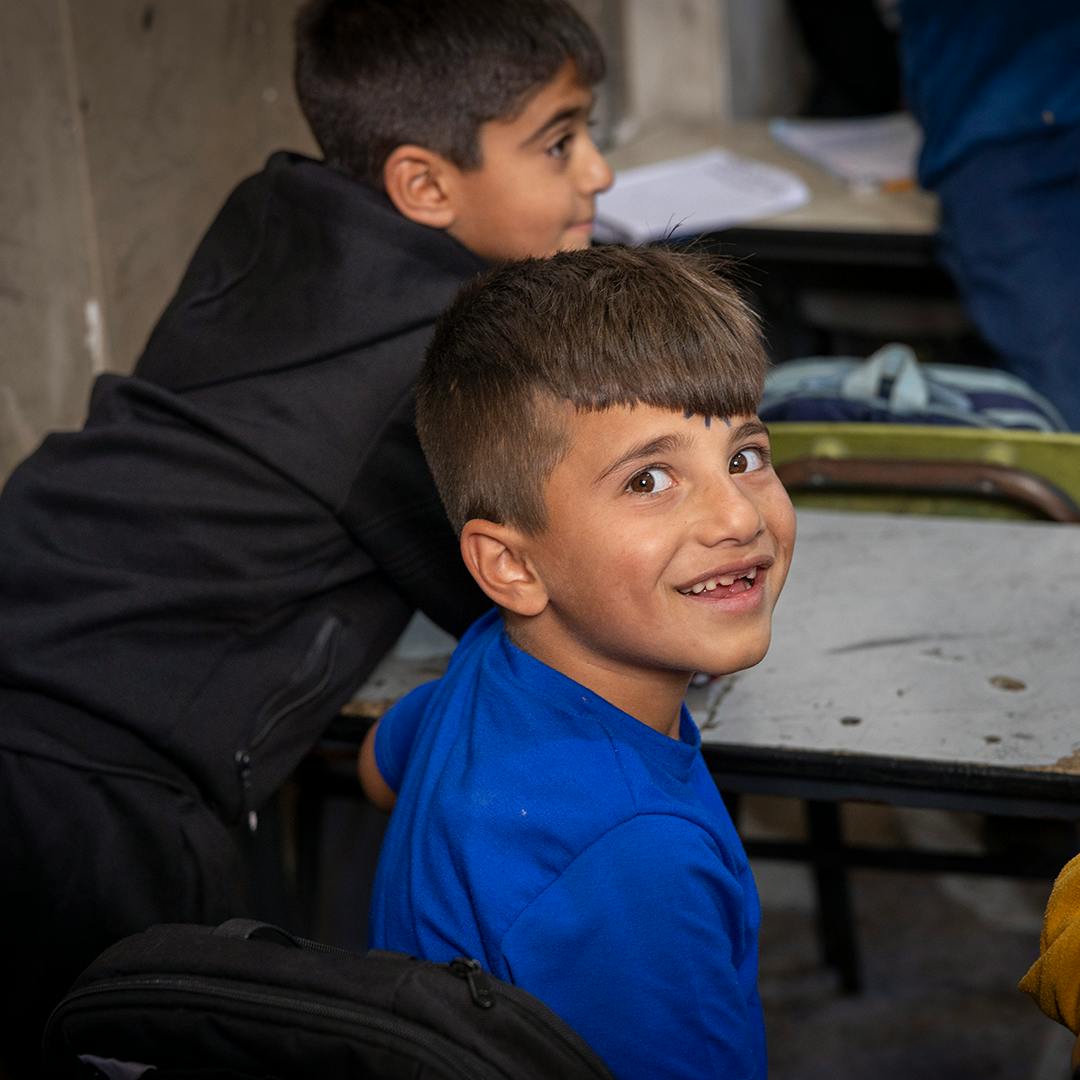
WATER & HYGIENE
Safe drinking water provided for 2.9 million people and critical hygiene supplies for 638,390 people.
HEALTH
Medical supplies for more than 250,000 people and psychosocial support services for 314,000 people.
EDUCATION
Learning materials have been distributed to 210,000 kids so they can continue their education.
Lebanon
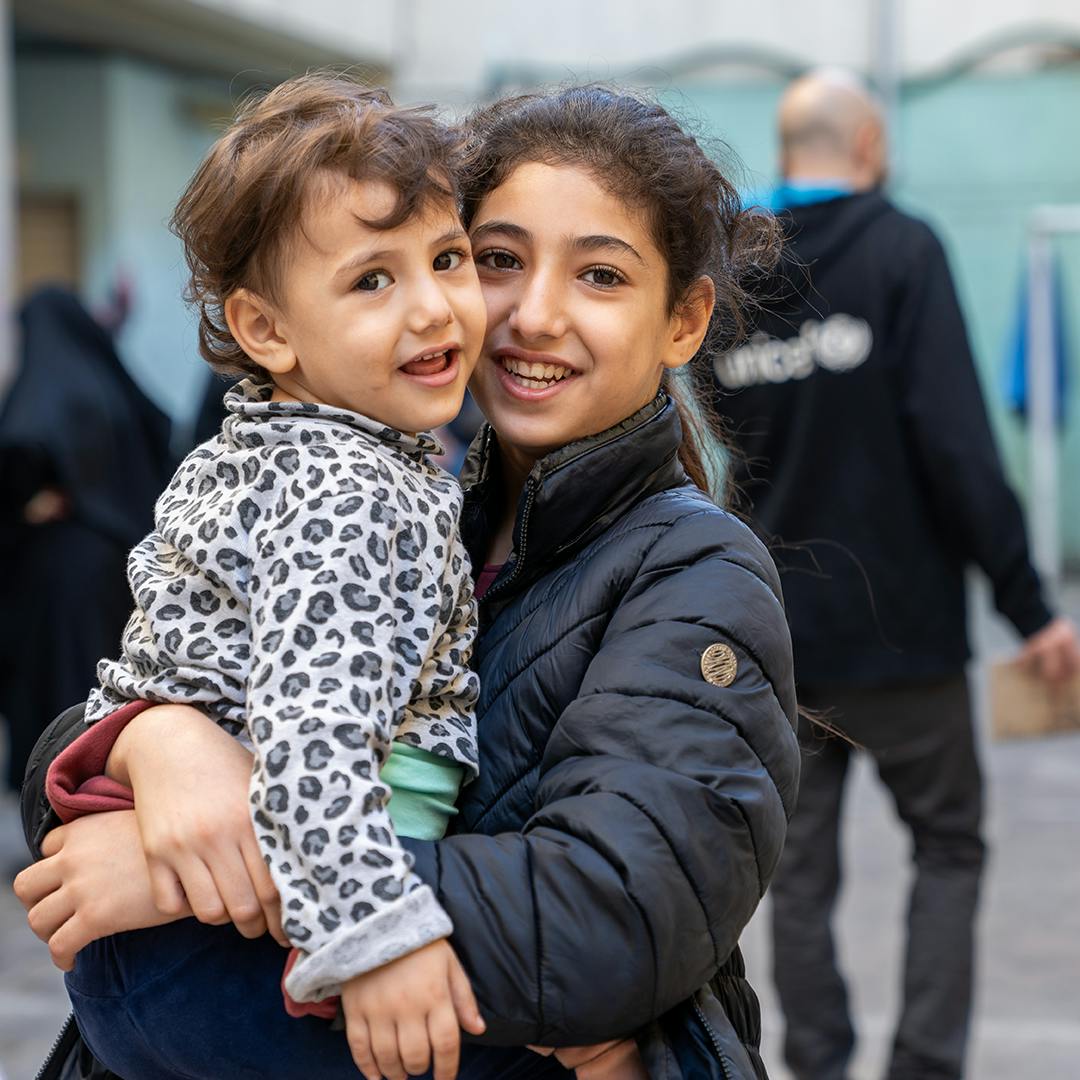
The announcement of a ceasefire has brought massive relief for families and children in Lebanon. We hope it will bring an end to the deadliest period of fighting in decades – but our work there is far from over.
We’re calling for timely and unimpeded access to continue our delivery of lifesaving aid and services. Alongside local government and partners, we’ll help to build back essential infrastructure so communities in Lebanon can begin to heal.
"UNICEF stands ready to support early recovery efforts, providing resources and expertise to rebuild water systems, primary health care, schools and other services children rely on” - Catherine Russel, UNICEF Executive Director
During the conflict, UNICEF delivered 135 metric tons of emergency response supplies, and an additional 167 tons of medical supplies.
These included:
WATER
We distributed 450,000 litres of safe, clean water to keep kids hydrated and protected from preventable illnesses.
WARMTH
22,000 blankets and 6,000 mattresses and sleeping bags were given to families and kids who have been displaced.
HYGIENE
26,000 hygiene and baby kits, and 12,000 personal hygiene kits were given to woman and children.
Read below to learn about some of the emergencies we responded to this year.
Below are some examples of the ongoing work we’re doing for kids and their communities to recover and strengthen resilience after disaster.
Sudan
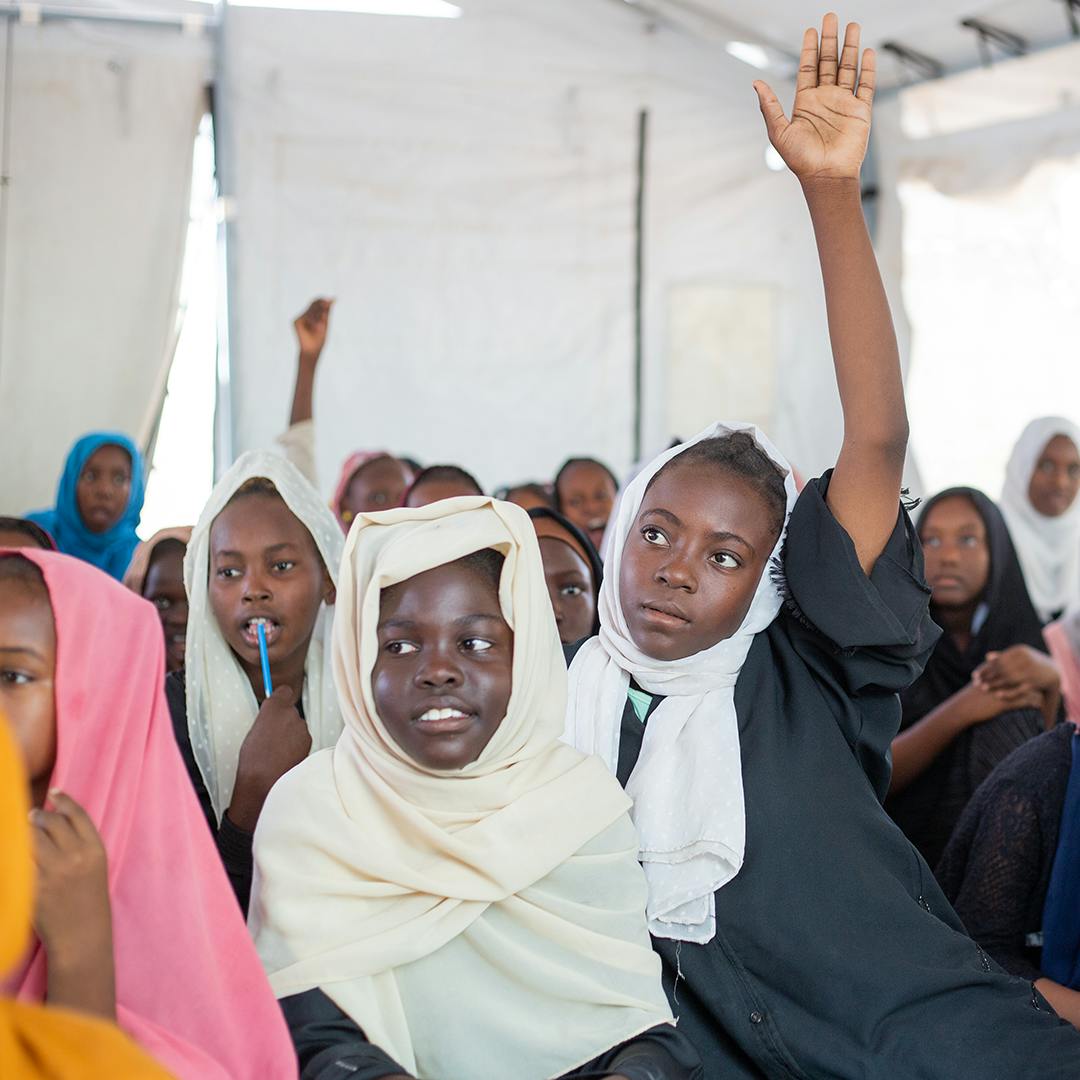
Ongoing hostilities in Sudan have fueled a lethal combination of displacement, disease outbreaks and hunger. The consequences have been devastating for children.
UNICEF has had a presence in Sudan for more than 70 years, and we’re tackling the current situation with a three-pronged strategy. Delivering lifesaving supplies and services in frontline areas, providing urgent assistance in displaced communities, and strengthening essential services like healthcare and education.
Our work is far from over. We’re committed to doing everything we can, so kids in Sudan can live the childhoods they deserve.
In 2024, you’ve helped us deliver:
WATER
We provided safe, clean drinking water for 3,963,449 people.
HEALTH
14,472 kids and parents were given lifesaving treatment for malnutrition and 5.7 million children were vaccinated against preventable diseases.
EDUCATION
Learning materials were distributed to help 124,400 kids continue their education.
Ukraine
The situation for children and families in Ukraine remains horrific. Attacks are ongoing and the toll it’s taking on children is staggering.
Since August, 170,000 people have been forced to flee their homes. They join the 3.6 million Ukrainians who’ve been displaced since the war began. Kids are continuing to miss out on the basics.
Support from Kiwis like you is how we’re able to keep providing essential services such as healthcare, clean water, mental health and psychosocial support, education, and nutrition. By working with partners on the ground we’re able to distribute supplies and provide services to ensure isolated and hard to reach children don’t get forgotten.
You’ve helped us provide:
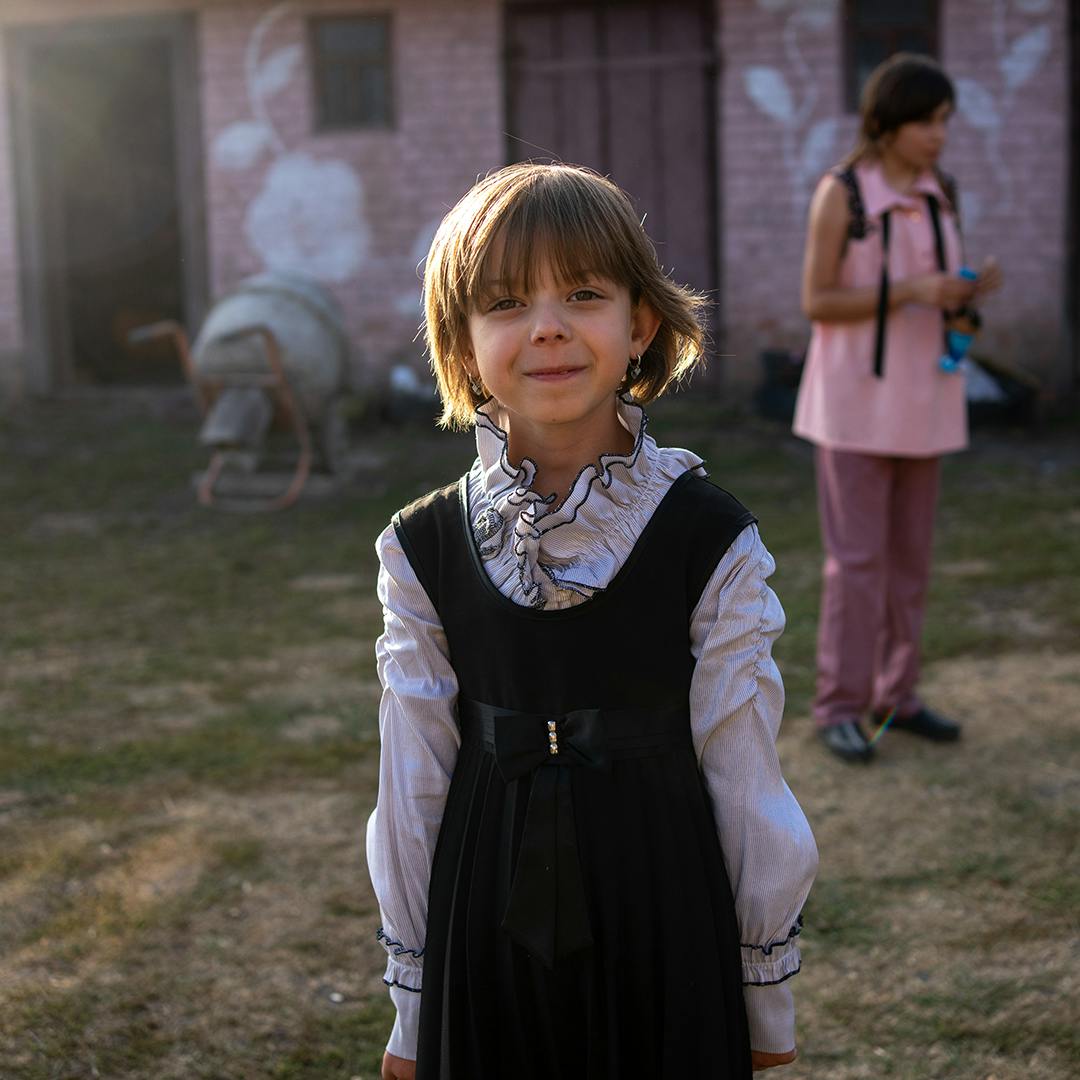
WATER
We’ve provided safe water to 4 million people for drinking, cooking and cleaning.
HEALTH
526,440 kids and parents have received psychosocial support to process their trauma.
CASH ASSISTANCE
47,100 parents experiencing financial hardship have benefited from our cash assistance programme.
Somalia
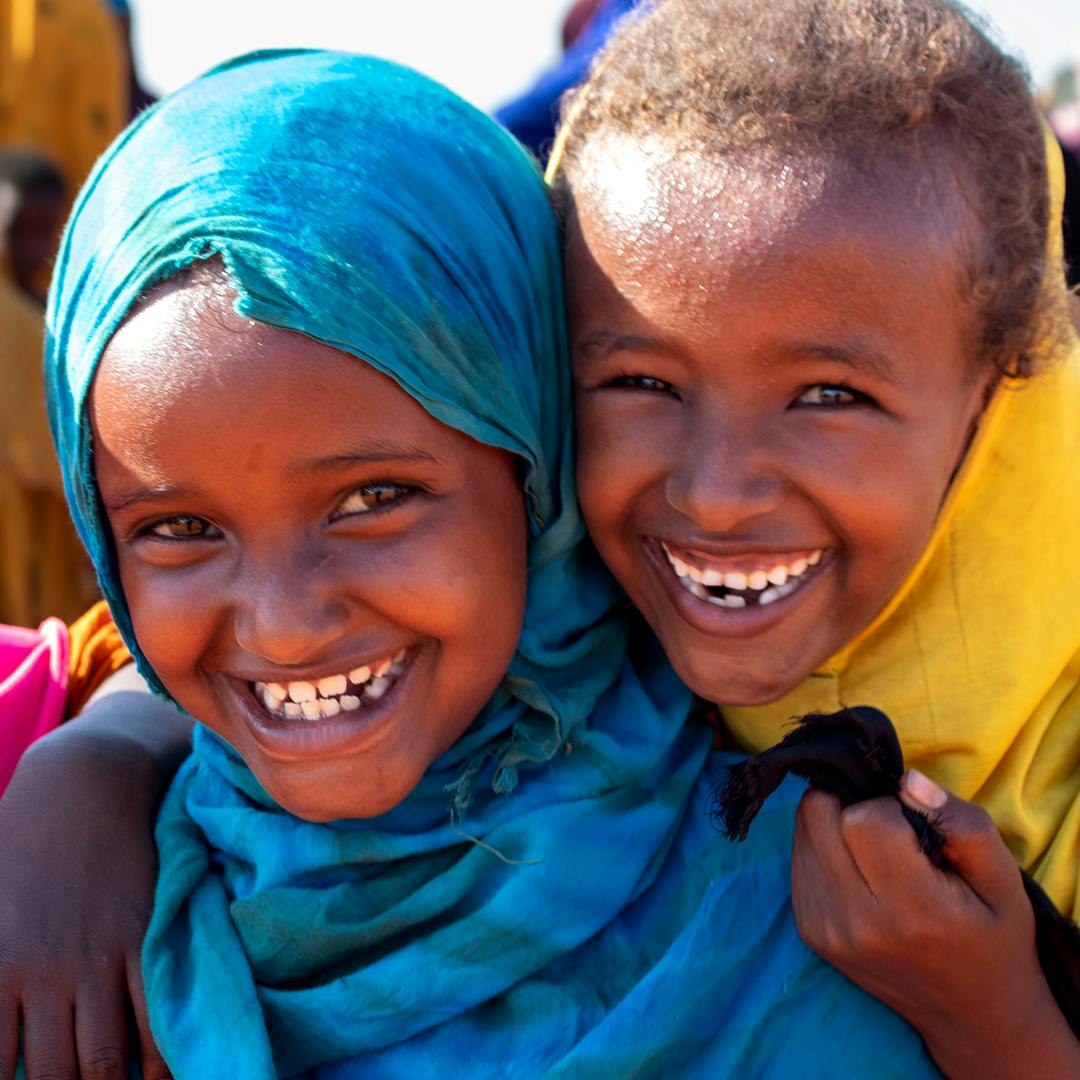
Extreme weather, civil conflict, chronic poverty and widespread food insecurity have made Somalia one of the most dangerous places in the world to be a kid.
UNICEF has been in Somalia since 1972, working around the clock to provide supplies and protection to children who need it most. Collaborating with local partners, we invest in projects that empower communities with the tools to create a better future.
These are some of things you’ve helped us deliver:
HEALTH
39,649 kids under five have accessed nutrition services.
HYGIENE
Hygiene promotion and kits have reached 184,244 parents and kids.
EDUCATION
We’ve helped 68,676 kids gain access to formal and non-formal education.
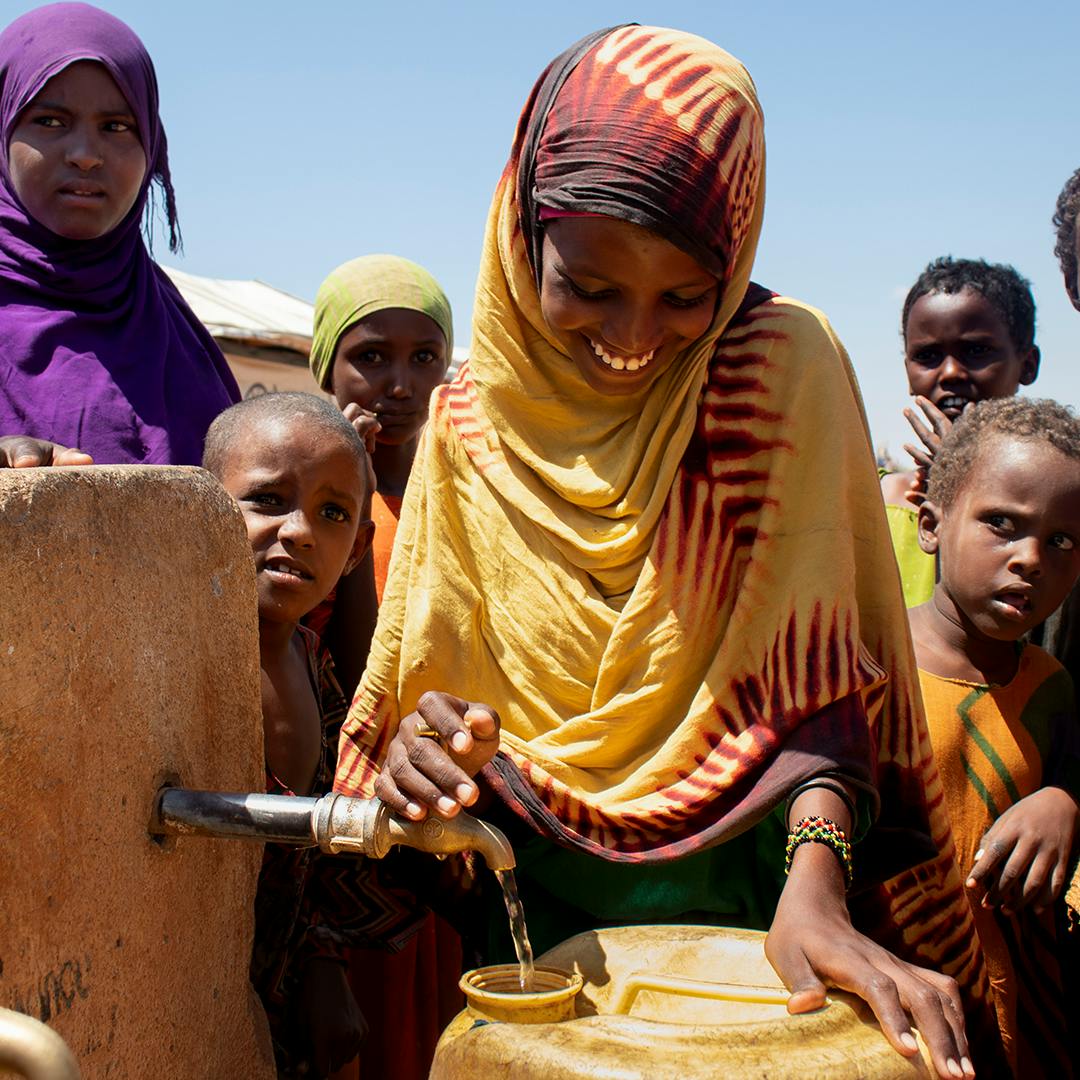
One of the projects carried out in Somalia was the construction of 25 elevated water tanks at Ladan displacement camp, Dollow. Shra Abdi, a 29-year-old mother of five, is one of thousands of displaced people living here after ongoing drought forced her to leave her home in Ethiopia.
“With this newly constructed water source, all our water problems have been addressed. The water source is a few meters from my home, and this has really solved a lot of challenges for not only me but the community here” - Sahra
Most Dangerous Year
for Humanitarian Workers
2023 was the deadliest year on record for humanitarian workers, when 280 aid workers were killed in 33 countries – a 137 percent increase on 2022. Between October 2023 and August 2024, more than 280 aid workers were killed in the Gaza strip alone.
Below are a few of the stories of UNICEF’s helpers, who’ve been risking their safety and lives every single day for the last 12 months.
James Elder, UNICEF Global Spokesperson
“There’s been a record amount of action on the ground from aid agencies. I have to say, aid workers putting themselves on the front lines. And we’ve seen more aid workers killed in this conflict at any time since the advent of the United Nations. So, more aid needs to come in, more funding needs to happen, less blockades by Israel as the occupying power. More facilitation. All these things can only really happen under the umbrella of a ceasefire.”
Salim Oweiss, UNICEF Spokesperson
“I was shocked by the depth of suffering, destruction and widespread displacement in Gaza. The footage the world sees on television gives an important peek into the living hell people are enduring for over 10 months. What it does not fully show is how behind the crumbled buildings – whole neighborhoods, livelihoods and dreams have been levelled to the ground.”
Mazen Khudair, Healthworker
“Our medical mission is to treat any sick person, whether from the Israeli army or any other party. We will provide them with the necessary treatment. I cried for the destruction of this place, and when I saw these destroyed devices, it broke my heart.”
Fairooz Abu Warda, UNICEF Early Childhood Development Officer
“Returning to work is not just a decision, it’s my duty as a humanitarian worker. I can’t just stop. What keeps me going is knowing that people depend on us. We need to continue doing what we do, no matter how hard the situation, how tough the situation gets. Our work is not only about providing aid, it brings hope.”
Fighting Malnutrition
Not only are we dedicated to being there before, during and after emergencies, but we’re committed to solving some of the biggest problems impacting the most vulnerable kids.
One of the questions we’re asked about is whether or not UNICEF is making a difference to solving world hunger. Access to food and water are just two fundamentals that humans need to survive, and where a lot of our energy in our global projects focus.
We’ve made massive progress over the last 77 years – especially with maternal and child nutrition rates – but ongoing and evolving factors like climate change, political and economic instability mean that we need to keep up the mahi to ensure we hit our goal of eradicating world hunger by 2030.
Below are just some of the ways we’re tackling the global malnutrition crisis.

If we want a future where every child is happy and healthy, with equal opportunities, we need to think differently. Outside the box. To invest and create new solutions and opportunities with individuals who share our vision. Who’ll help build that future with us.
MFAT Partnership
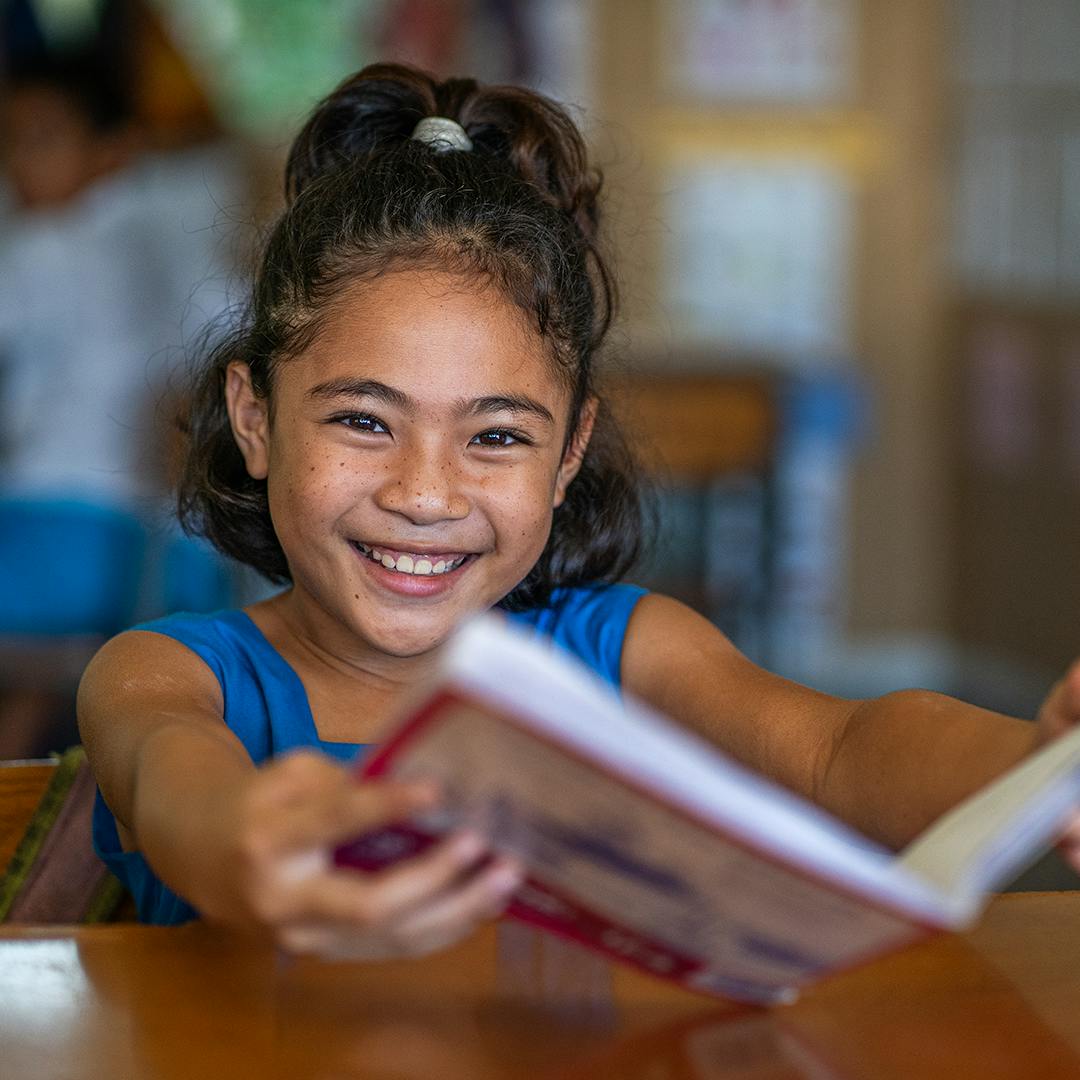
Our multi-year partnership with the Ministry of Foreign Affairs and Trade is all about investing $17 million into making a huge impact for tamariki in five Pacific countries!
During the third year of the Negotiated Partnership, we’ve continued making massive progress to ensure kids receive the best possible start in life.
Systems-strengthening and localised support for Early Childhood Care and Education has continued in Kiribati, Timor-Leste and Papua New Guinea. Water, sanitation and hygiene initiatives in the Solomon Islands, Kiribati, Vanuatu and Papua New Guinea are improving kids’ access to safe, clean water at school, and at home.
We’re more than halfway through this six-year partnership, and together we’ve achieved so much for kids in the Pacific.
Let's look at the progress we've made.
EARLY CHILDHOOD CARE AND EDUCATION
WATER AND SANITATION
Immunising kids with Rotary
UNICEF and Rotary began our partnership in 1988 with a joint goal to eradicate Polio. Although our work isn’t done, we’ve made massive progress in dramatically decreasing the number of polio-endemic countries.
The partnership has spanned 200 countries, making possible the immunisation of 3 billion children! Cases have decreased globally by an astonishing 99.9 percent. Widespread vaccination has prevented an estimated 650,000 cases of paralysis every year and saved the lives of 60,000 children. That’s pretty incredible.
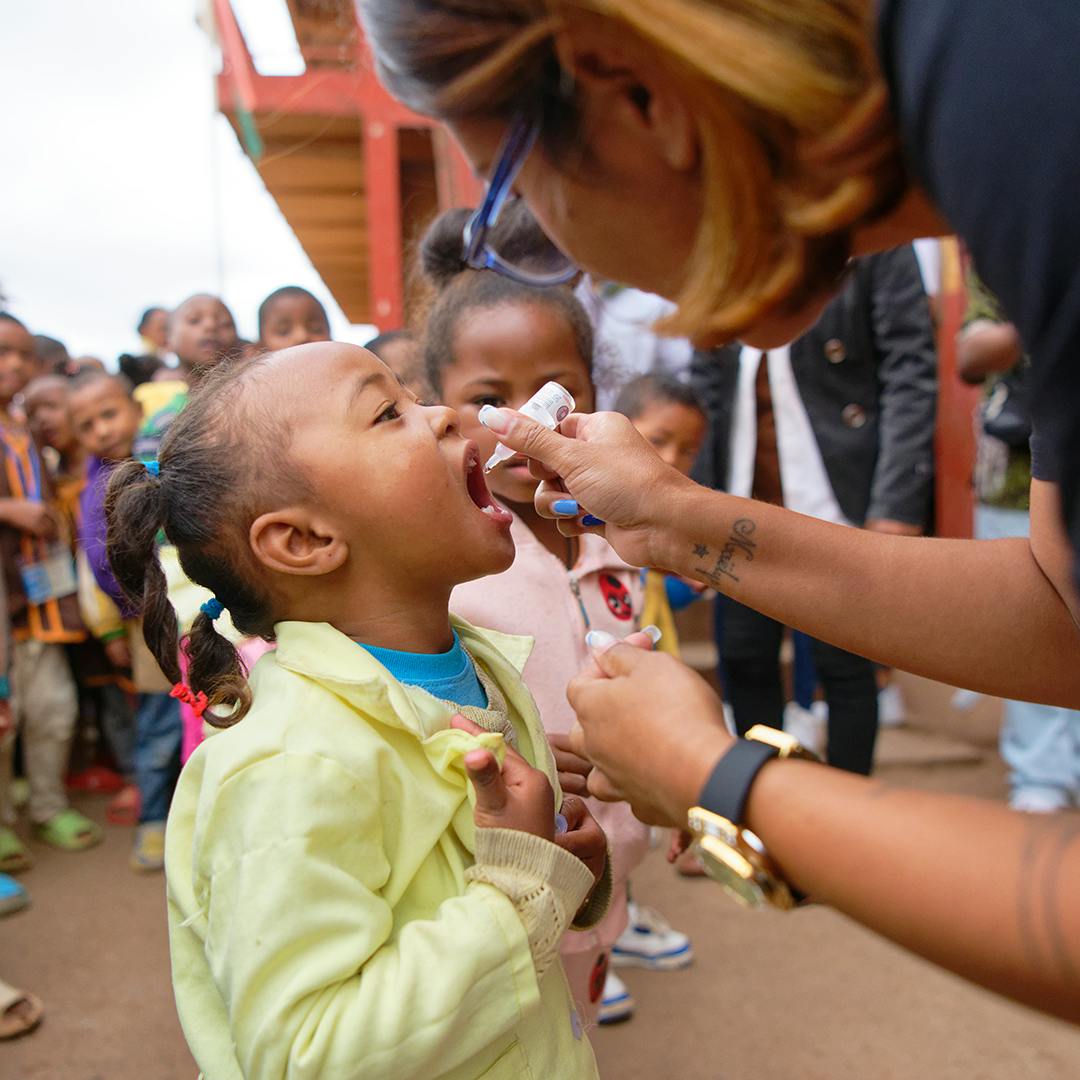
A Team Effort!
Peer-to-peer challenges are a great way to engage the community in a meaningful cause! From running a marathon, climbing a mountain or selling cakes - there’s no limit to how you can make a difference for kids.
Whether it’s in collaboration with big names like Les Mils or school-run bake sales, every dollar raised for UNICEF makes a huge impact for children.
Workout for Water
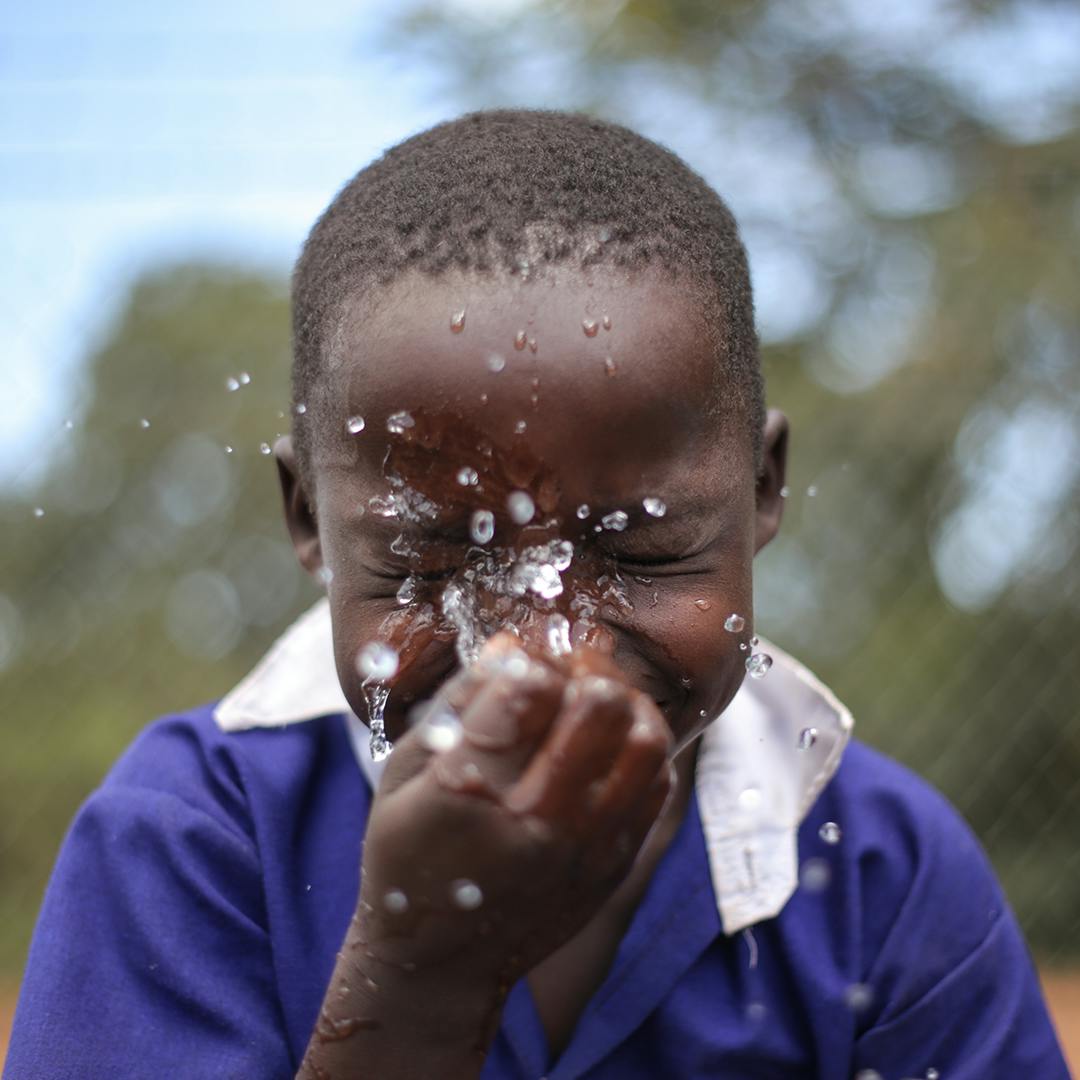
The Les Mils Workout for Water campaign kicked off on World Water Day this year! The challenge pushes participants to work up a sweat and raise funds for the 450 million children who don’t have regular access to clean water.
Throughout the six-year partnership, Les Mills staff and members from all over the world have raised close to $2.2 million USD for UNICEF. Workout for Water funds lifechanging projects, like a solar powered water system in Ethiopia that provides fresh, clean water to more than 80,000 people!
During this year's campaign, Kiwis of all fitness levels from around the motu committed to the challenge and raised an incredible $193,200 for kids.
Beat Dan Carter
In April this year, we launched the Beat Dan Carter Challenge to raise funds for kids’ access to safe, clean water in the Pacific.
At New Zealand’s home of rugby, Eden Park, Dan set the challenge target; smashing out 273 goals using one ball, from one tee, in one hour
We were blown away by the efforts of Kiwis who chucked on their rugby boots and got kicking for kids in the Pacific. 472 individuals and teams signed up, booting over 12,000 kicks – all while fundraising more than $130,000 for our Pacific whānau.
Keep an eye out for what’s to come next year!
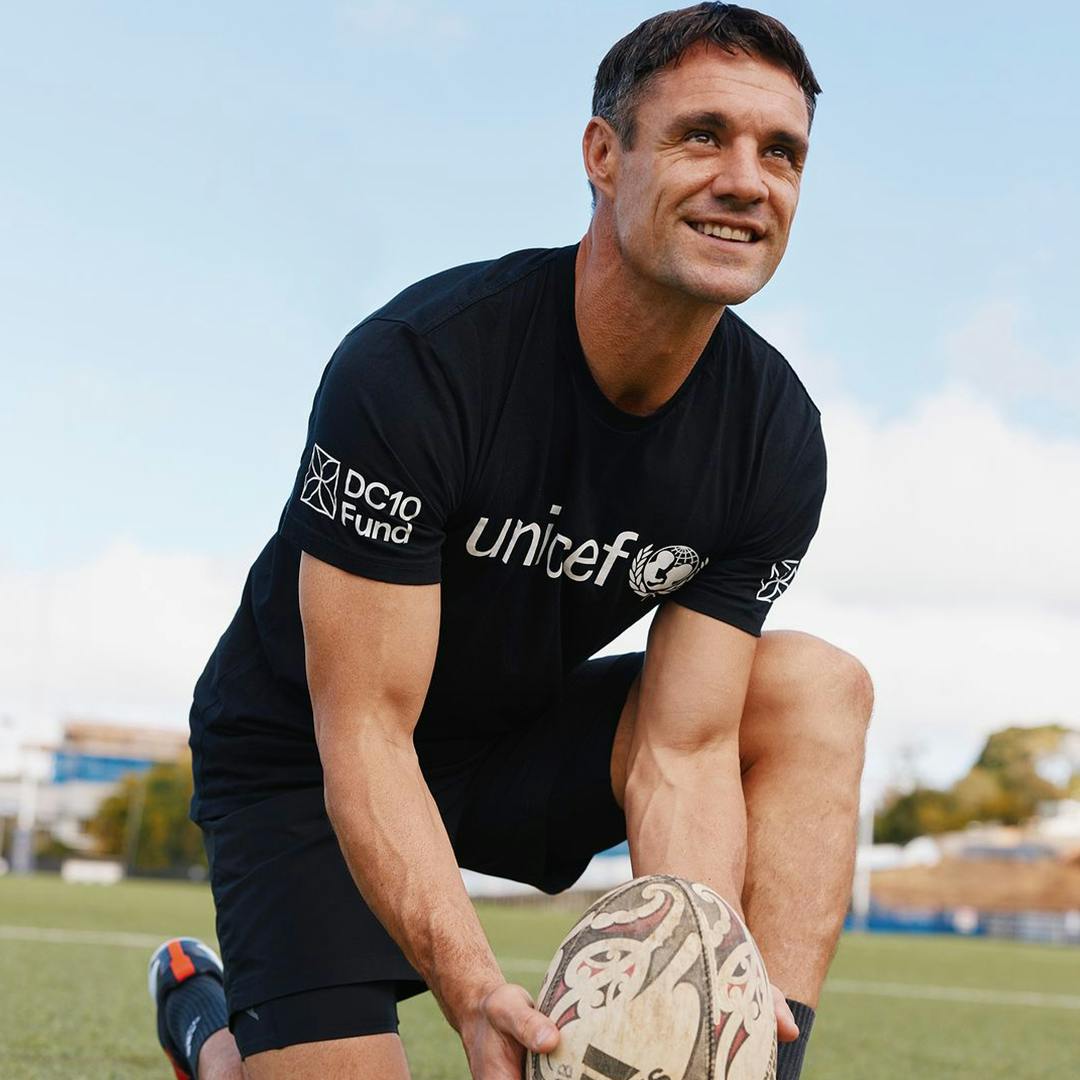
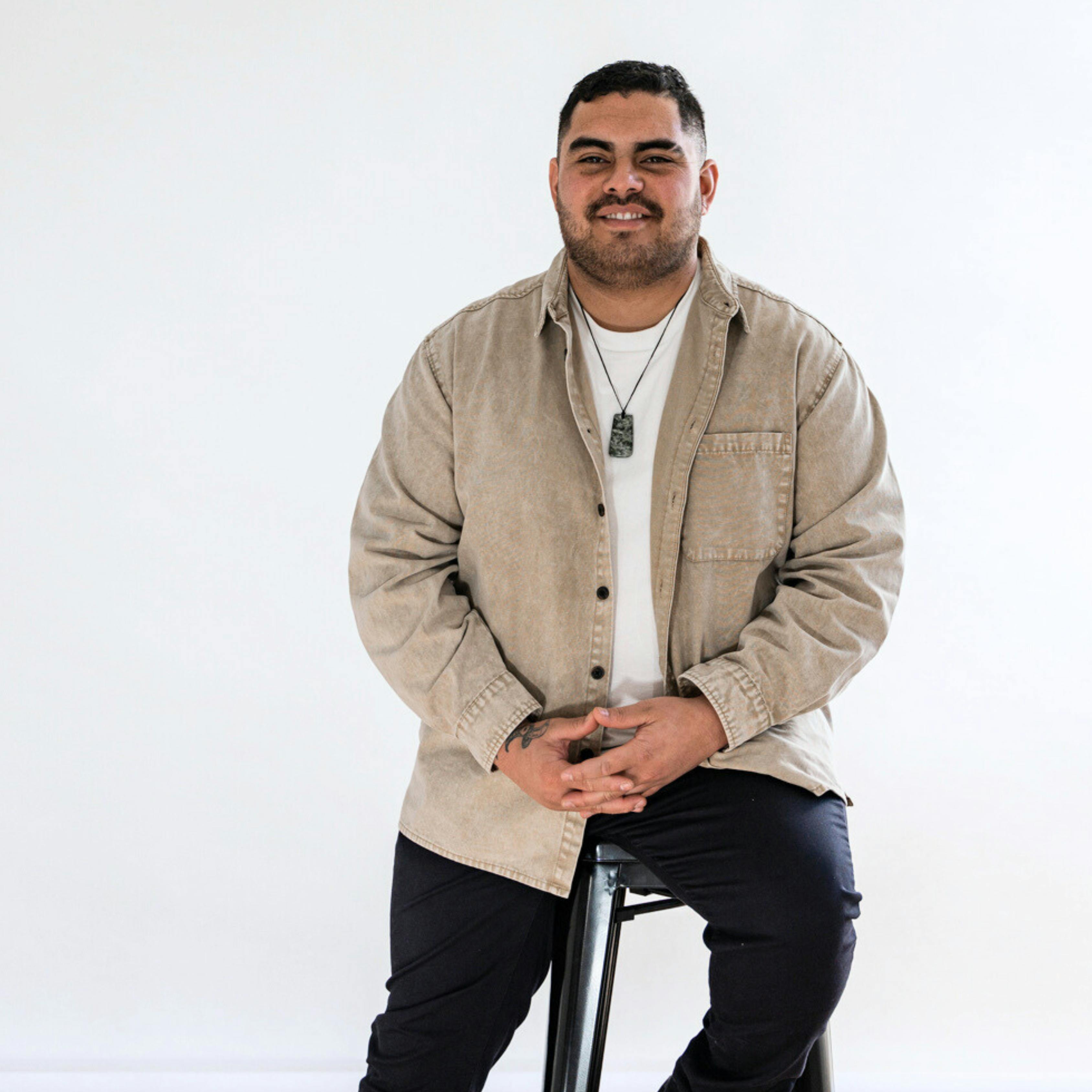
"To partner with Dan Carter, my favourite all time rugby player, and UNICEF to fundraise for a cause that provides clean water in the Pacific, I could not be more grateful to contribute”
Josiah Komene, BDC participant
Our Schools and Clubs programme is a great way for young people to rally together and fundraise for causes that matter to them. Rangatahi from around the country have put in the hard yards this year and we want to shout out some of their incredible work!
Our priority lies with supporting and empowering kids - and that’s true for tamariki and rangatahi at home, too. Our advocacy work in Aotearoa is all about championing children’s rights - so that future generations have the support they need to thrive in their communities!
So, how exactly are we doing this?
We regularly submit feedback on government proposals to highlight the impact policies will have on kids. Our advocacy team pushes for changes that ensure the best possible outcomes for children and amplify their voices in the decision-making process.
In October of this year, we submitted feedback on the Draft Suicide Prevention Action Plan for 2025-2029. Heartbreakingly, New Zealand has one of the highest rates of teen suicide globally. As signees of the UN Convention on the Rights of the Child, our government has agreed to protect and support our tamariki and rangatahi. We need to do better.
That’s why, in our submission, we recommended children and young people be included in the development of policies and plans. Their voices and experiences need to be heard. We outlined the need for evidence-based programmes that are equitable and have Te Tiriti o Waitangi embedded. The submission also calls for a whole-of-society approach to suicide prevention, including addressing key factors that influence mental health, like living in poverty.
This is just one example of the many submissions we make every year on behalf of kids. To read more, check out our Submissions page.
Young Ambassadors
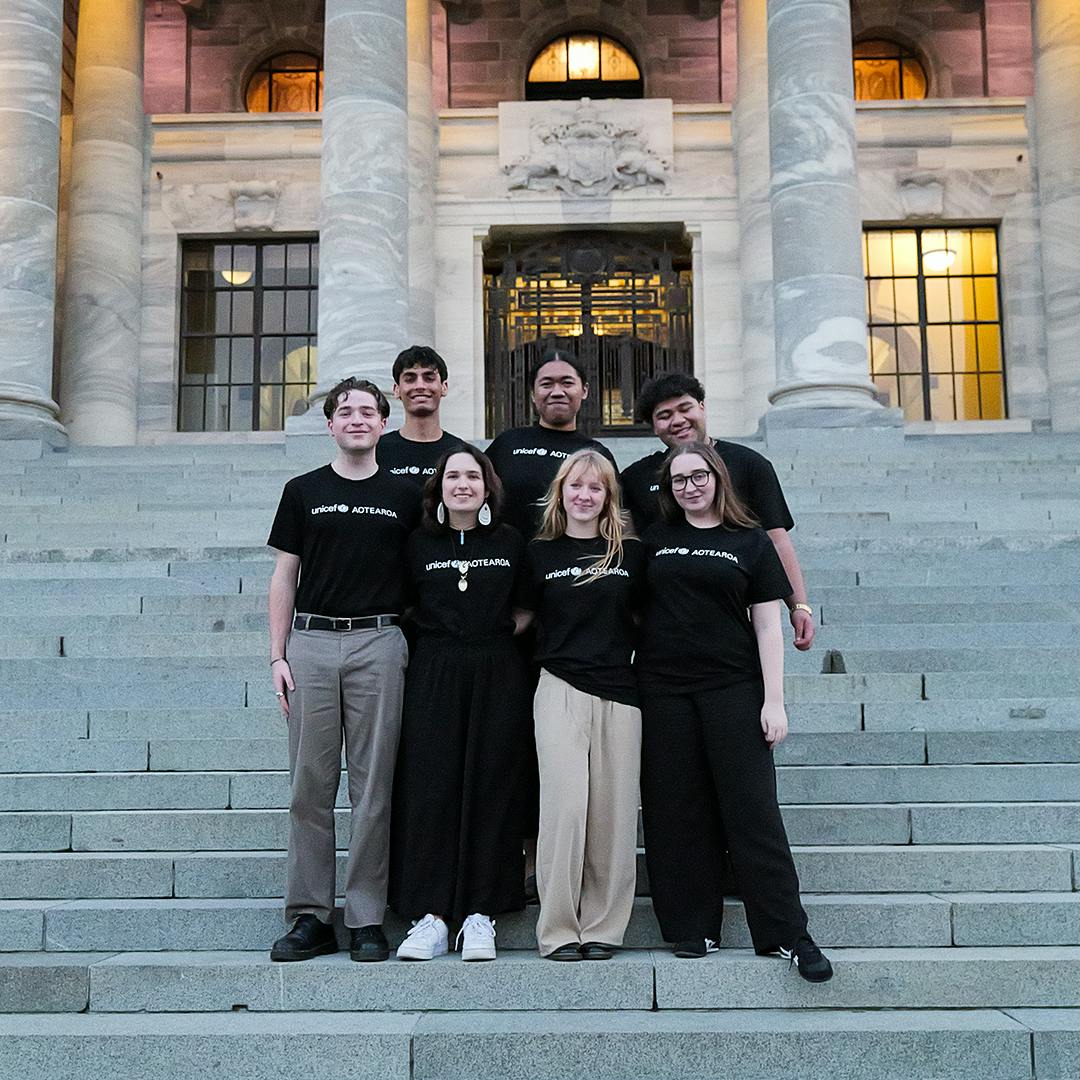
Every year we support up to eight Young Ambassadors from across the motu, between the ages of 17-24, to give them the tools they need to speak up on the issues facing young people in Aotearoa.
YAs travel around the country to speak with other rangatahi from all communities and cultures, learning about the challenges they face and the changes they’d like to see. As part of the programme, they receive training in advocacy and are given opportunities to speak with changemakers and politicians.
To get to know more about this year’s passionate Young Ambassadors, head over here.
Parliamentary Forum
for Children’s Rights
This year, we launched our parliamentary forum that gives rangatahi an opportunity to speak directly with New Zealand’s decision makers! The forum is the first of its kind in New Zealand and will be held quarterly at the Beehive, with an invite extended to all MPs.
Led by our UNICEF Aotearoa Young Ambassadors, and hosted by MP sponsor Camilla Belich, the regular hui focus on New Zealand’s ongoing obligations as a signatory to the UN Convention on the Rights of the Child. Each session will cover a different Sustainable Development Goal, empowering rangatahi to speak up on a range of issues that impact young people and children in Aotearoa.
During the second Parliamentary Forum in May, the Young Ambassadors took to the stage to speak around Sustainable Development Goal 1 – Poverty. The third was hosted on World Children’s Day in November and gave our ambassadors the opportunity to speak on inequality and discrimination.
Here’s what one of our YAs had to say about the forum.
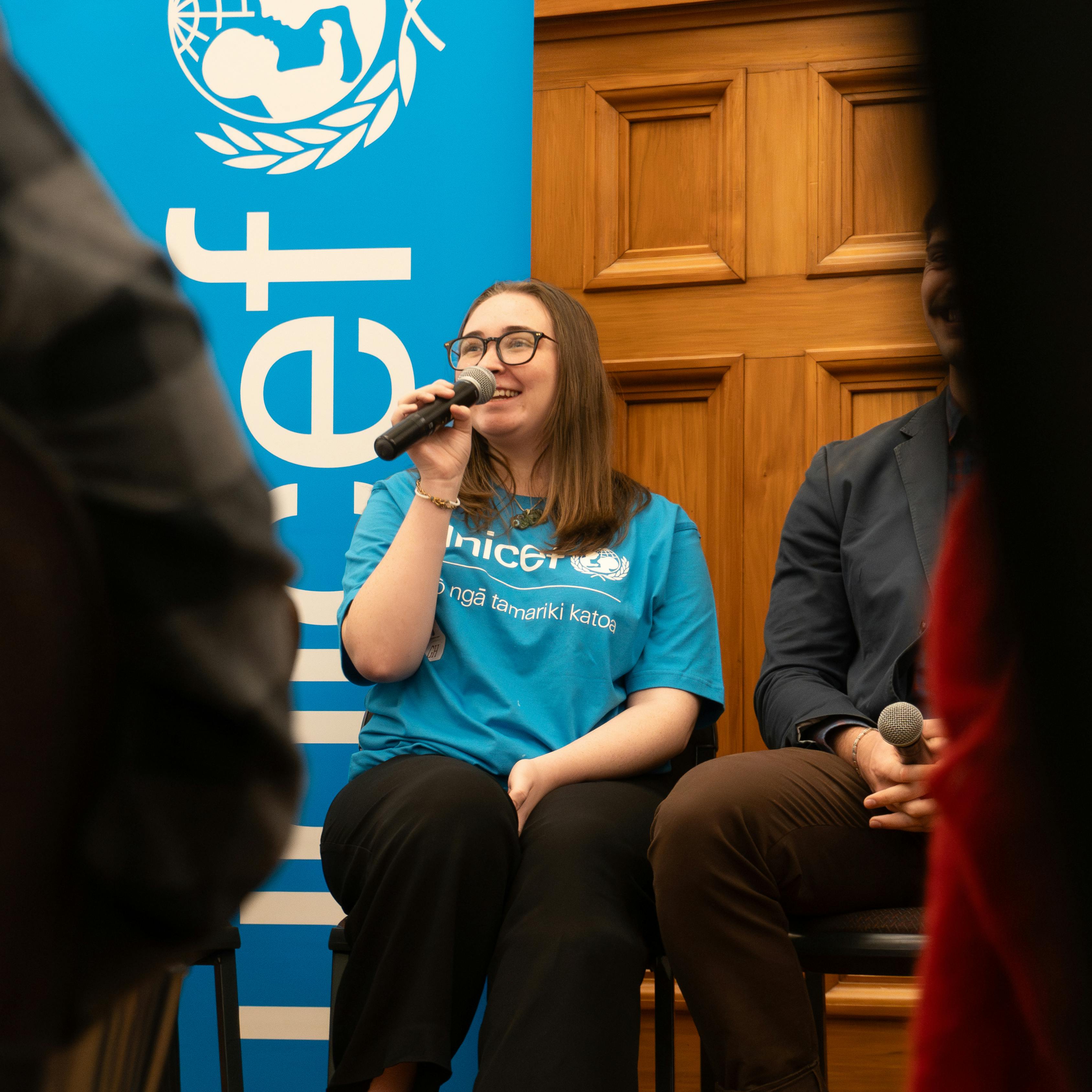
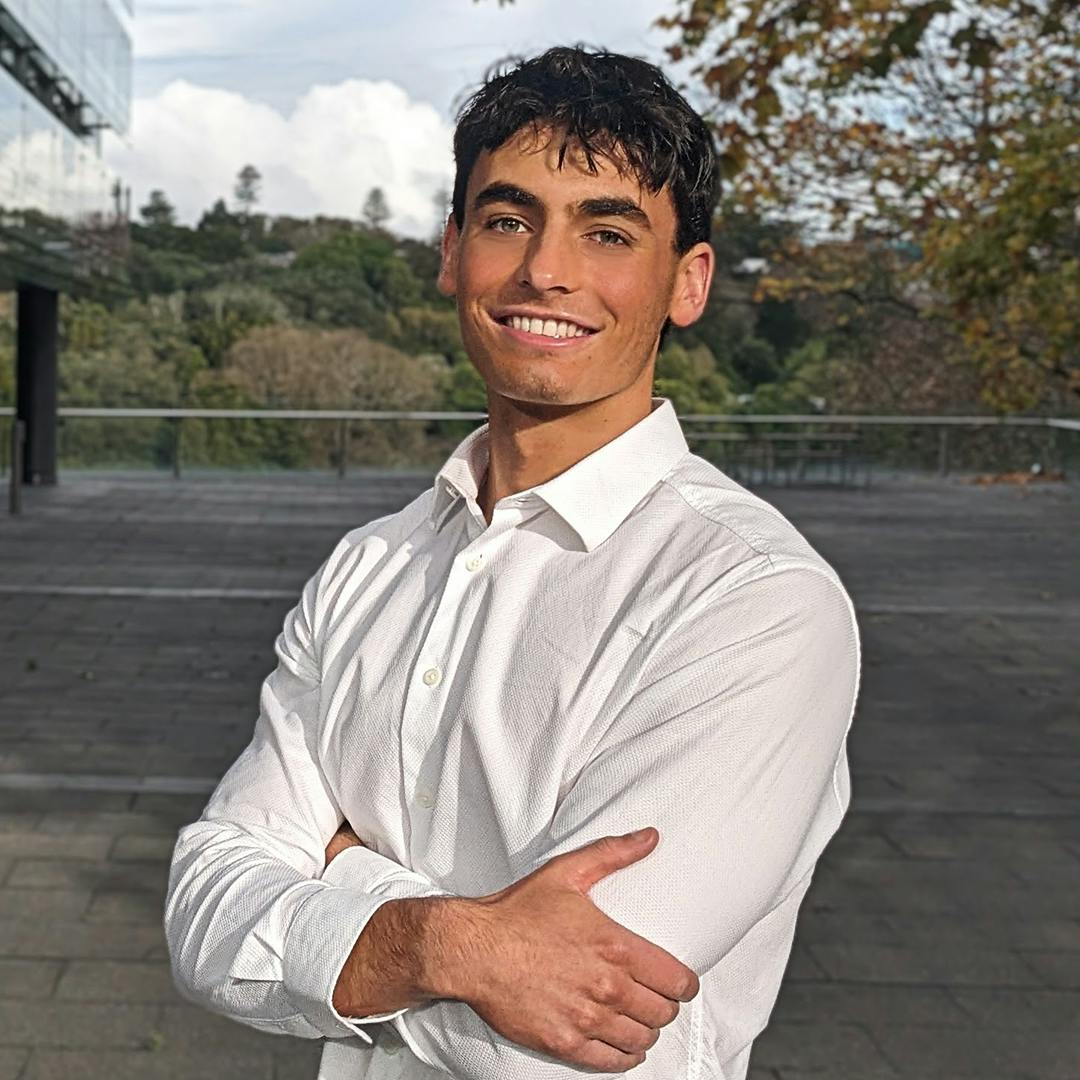
“It’s a special experience to be speaking at Parliament about issues close to your heart. It’s a testament to the UNICEF Aotearoa commitment to youth voice – having Young Ambassadors speak on child poverty at a national forum is a crucial example of prioritisng youth leadership when it comes to the issues that impact youth the most”
Ronan Payinda, UNICEF Aotearoa Young Ambassador
Future Projects
Until we complete our mission of every kid, everywhere, thriving – we'll keep working at it, no matter what. Our mahi over the past 78 years proves that even the biggest barriers can be broken if you don’t give up. So, let’s take a look at the game plan for next year and into the future.
Together, we’ve achieved so much for kids in 2024. Every UNICEF supporter should feel proud of how much impact they’ve made in vulnerable children’s lives around the world. And we’re not slowing down. Next year, we’ll continue scaling up our long-term programmes, thinking outside the box, and being there for kids when they need us most.
Every child, everywhere, thriving is no small feat - but, because of our amazing donors, we’re closer to making that a reality than ever before. Thank you for believing in us, and for doing your bit to create a brighter future for the next generation. Let’s do it all again next year!
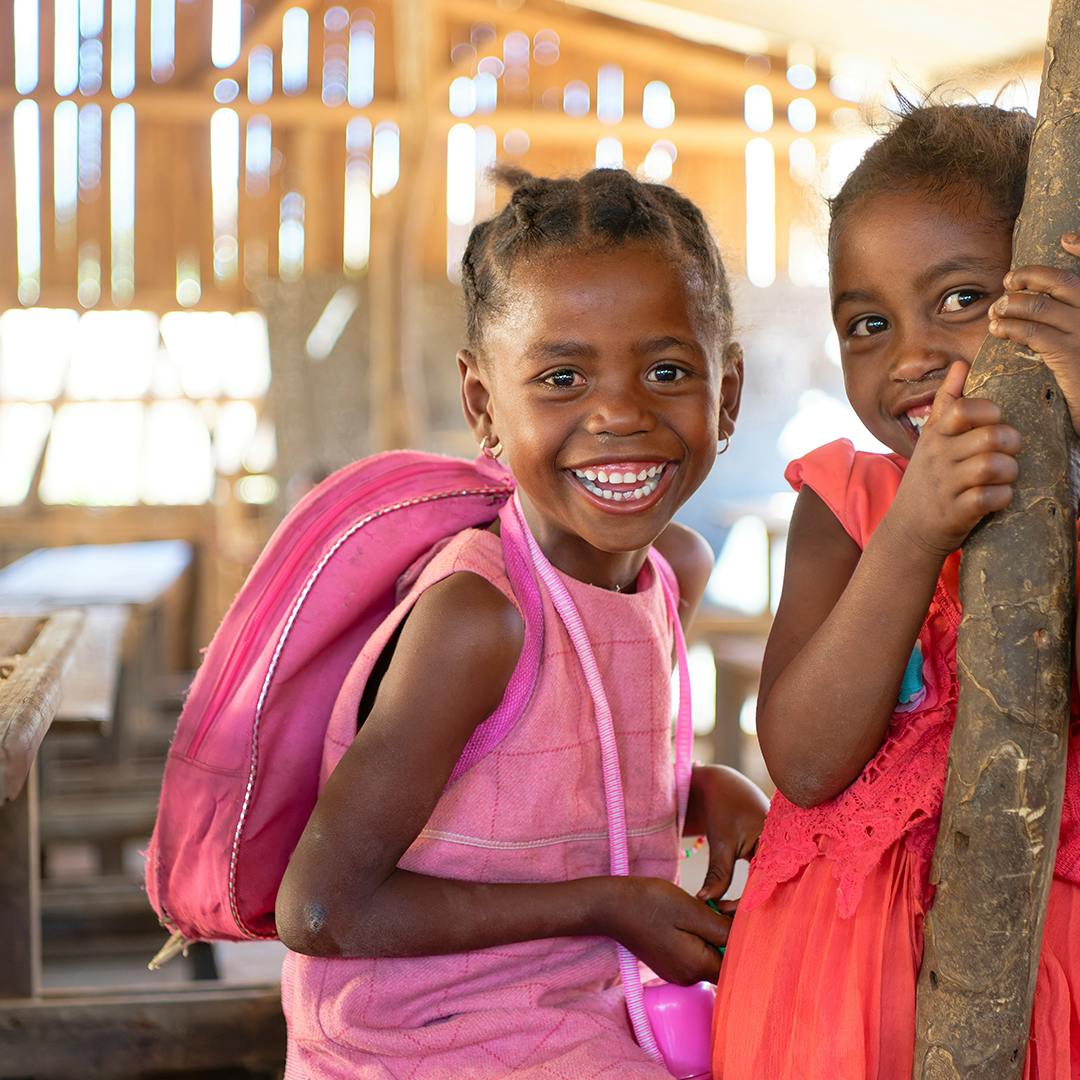
We couldn’t fit all of our mahi into one page, so if you want to learn more, dive into some of our stories.

The Good News, November Edition
For over 75 years, education has always been a core theme in our mahi around the world. A child’s right to learn is universal, no matter where they live or what their circumstances are. Whether it’s part of an emergency response or supporting governments with long term solutions, everything we do weaves in education.

The Last Generation
1 billion kids around the world are at extremely high risk due to the climate crisis. About 5,000 of them live in Tuvalu. It isn’t just the land and people under threat, it’s a culture, an identity, and a way of life.
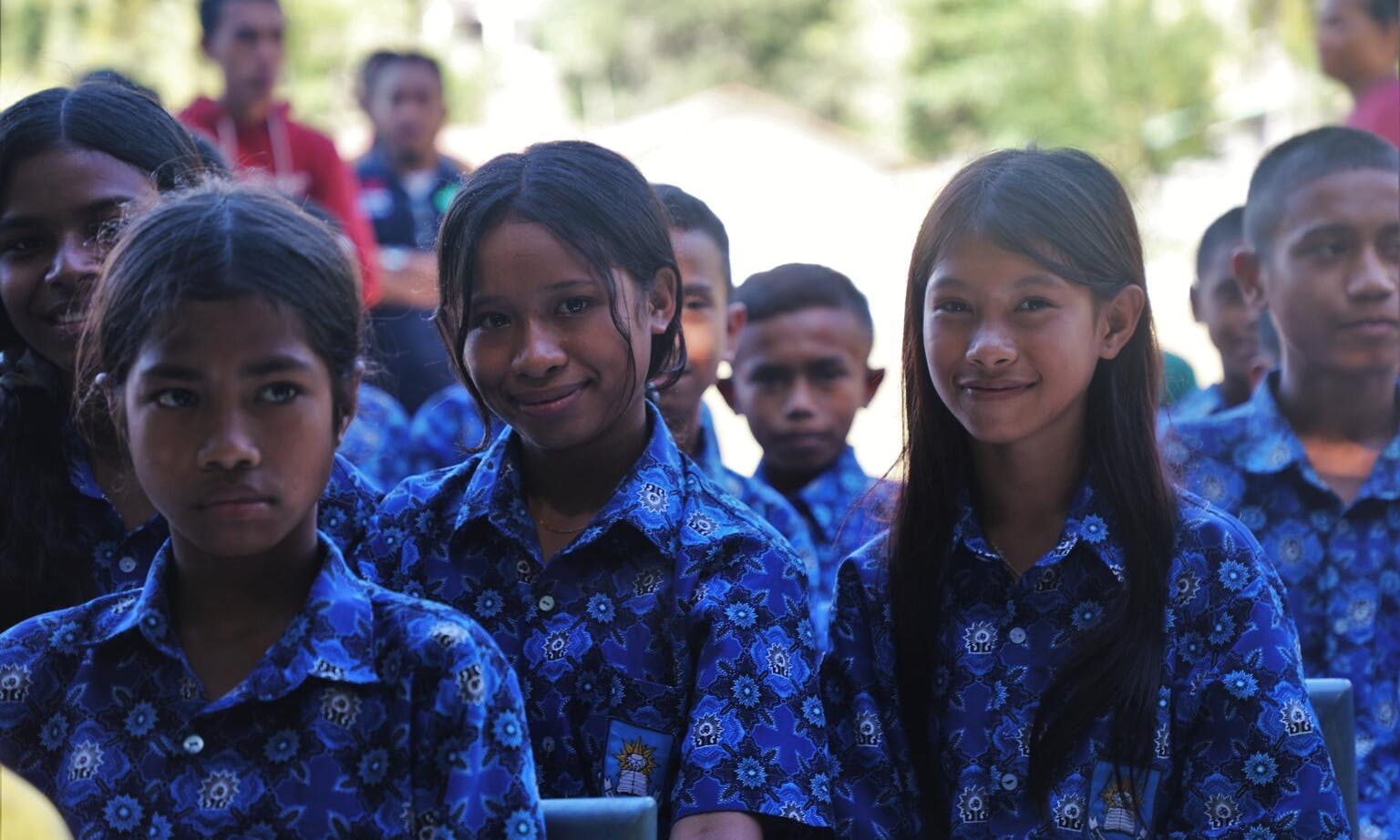
Breaking ground in Timor-Leste: Climate Resilience through Nature Based Solutions
International Children’s Day in Timor-Leste - children of UNICEF and other UN Agencies staff today spent the afternoon decorating the UNICEF wall with their colourful painted palms.
